

How to Write a Great Engineering School Personal Statement
Find schools.
When you click on a sponsoring school or program advertised on our site, or fill out a form to request information from a sponsoring school, we may earn a commission. View our advertising disclosure for more details.
You have spent months researching and identifying the best engineering schools, studying for and completing the SATs, GRE, or other standardized tests, and filling out tedious college applications. You are on the verge of burnout when it hits you: you have to write a personal statement.
How important is it to write a great personal statement? Ask the admissions committee, and they’ll tell you that writing a personal statement is like applying for a job. Stephen J Aguilar, an assistant professor of education at USC, reported in 2020 to Inside Higher Ed that a personal statement should be less revealing and more persuasive. At its core, the personal statement needs to answer these two questions:
- Why are you applying here?
- How do your interests and experiences align with the program or the faculty you’ve identified?
However, the importance of reading and understanding the question prompts cannot be overstated. For example, the University of Iowa College of Engineering, which places 97 percent of its undergraduates in jobs post-graduation and currently has 284 master’s and doctoral students, goes one step further to differentiate personal statements from statements of purpose .
This institution wants to know in the statement of purpose , “Why is this program a good fit for you?” By contrast, the personal statement elicits answers to the question: “Who are you?” and allows applicants to explain themselves to admissions committees regarding academic achievements and life events that have shaped them and will positively influence the campus community.
That said, a personal statement is not just an essay. It has to be intelligent, engaging, typo-free, and capable of convincing admissions reviewers that you are a better fit for their program. Fret not. With lots of research and preparation, you can submit a college essay that reflects your passion and capabilities.
Read on to learn the what, the why, and the how-to of writing great personal statements to gain admission into engineering school.
How Is a Personal Statement Evaluated?
The title "personal statement" is generally synonymous with college essays. However, some admissions professionals use it to refer more specifically to written statements that explore applicants’ program readiness and intentions if admitted. The purpose of these statements for engineering school applicants is three-fold.
First, colleges want to know that they can write well, and not just from a technical perspective. Of course, grammar matters, but perhaps more important is the ability to communicate ideas.
Second, engineering schools want to know who a student is—the nuggets that are not conveyed through a conventional application or school transcripts. This is the written equivalent of the interview question “tell us about yourself” and is the applicant’s chance to share who they are, what they want to do, and how gaining admission to this program will be mutually beneficial.
Finally, colleges want to ensure applicants are familiar with and committed to the program. The best personal statements fulfill these goals, often in 700 words or less.
Does this sound like a tall order? Here are some tips for getting it right.
Six Tips for Writing a Stellar Engineering School Personal Statement
1. Do the research
It may sound simplistic, but one of the most important (and often overlooked) steps toward getting into the right school is taking the time to research a prospective engineering program, review its admissions policies and—this cannot be overstated—read and reread its application essay prompt. Candidates who don’t sufficiently answer an institution’s question or convey some misunderstanding about the prompt or its expectations are unlikely to be admitted.
Prospective students completing the Common Application should take the time to contact each engineering school they are applying to inquire about additional admissions requirements. The Princeton Review emphasizes that a personal statement should not repeat a previously discussed part of your application, nor should its information contradict another part.
2. Go deep, not broad
Personal statement prompts tend to be targeted. Engineering schools want to know what specific qualities or experiences make each student a good fit for their programs. Common inquiries include recalling a time you solved a problem, explaining why you applied, describing your academic goals and intentions, and addressing any extenuating circumstances that might have impacted your school record. Rather than offering a broad synopsis of your life, choose the experience or intent most relevant to the question and explore it in depth.
The Massachusetts Institute of Technology Graduate School offers advice for writing an in-depth personal statement for engineering schools using the “qualified match” approach. The steps include:
- Make a statement that fits the essay prompt, like “I am a dedicated and hard-working student.”
- Quantify your statement with specific details about your life. You might, for example, discuss how many hours per week you spend on school work and how you overcome any obstacles to committing that time.
- Interpret how those details make you a stronger applicant. To continue with the above example, that might include writing about the knowledge you gained during your studies, your time-management skills, your passion for learning, and your commitment to succeed despite challenges.
3. Be relevant
If a personal statement has only one goal, it is to be shown to a review committee that you are the right fit for its school. That’s why applicants to Stanford University’s Institute for Computational & Mathematical Engineering are asked to specify their personal and professional goals in their statement of purpose, as well as discuss their developments and intentions for study and life beyond their doctoral program.
Read the mission statements of each program to get a feel for what they are looking for and keep that in mind as you write. Rather than getting carried away detailing the hours you log volunteering each week, discuss experiences and activities as they relate to your academic and career goals or scientific interests. Also, be sure not to waste valuable ink rehashing information available elsewhere on your application, such as extracurricular activities or your stellar GPA.
4. Avoid gimmicks and cliches
Did you love playing with Legos as a kid? Did those plastic bricks lay the foundation for your drive to be an engineer? If so, the College of Engineering at the University of Washington suggests you are in good company, but not in a good way. Every year, the committee reads personal essays on how Legos were the building blocks of a student's career in engineering.
To stand out, engineering school applicants should avoid using cliches in their statements. Of course, setting yourself apart from other applicants is imperative, but you must do so in a meaningful and unique way. Admissions review panels have seen it all and are unlikely to be moved by creative gimmicks and attention-grabbers that do not get to the heart of what makes you a great candidate.
5. Mind your mechanics
This tip refers more to the mechanics of writing than any scientific drive, though the latter undoubtedly has a place in an engineering school personal statement. Remember when we said one of the goals of college essays is verifying applicants can communicate effectively? Applicants should consider the following elements as they prepare their outline (more on that next):
- Voice – Is your voice appropriate for the task? Is it too formal or casual? Are you using active language rather than passive and wishy-washy statements? Do you come across as academic?
- Structure – Do your ideas flow logically and support one main idea? If you are unsure where to start, know that following the reliable five-paragraph essay format is perfectly acceptable: introduction, three supporting paragraphs, and a tidy conclusion.
- Length – Engineering schools usually have a good reason for requesting personal statements with a specific word count. Those that are too short have too little to say, and those that are too long are likely to repeat the same concepts.
- Grammar – College students are expected to know and use basic grammar. Edit, edit, and then edit again.
- Completeness – Have you addressed the admissions essay prompt in full? What about any supplemental school or department-specific requests?
6. Edit, edit, edit
Writing a personal statement may seem like a herculean task, so it is tempting to push it aside when you type that final period and not look back. This is a mistake—and perhaps the biggest one you can make. Sometimes we get so caught up in our thoughts and ideas that we miss lapses in our writing, whether grammatical or contextual. To avoid this:
- Begin with an outline.
- Write the first draft.
- Write a second draft.
- Read the essay out loud.
- Review your essay again a day or two later.
- Ask parents, friends, teachers, and others to read your work.
There is never any excuse for typos, and even the slightest error can turn a committee review member off. Ask a friend or family member to review your essay for grammatical mistakes when in doubt. It may be intimidating, but the process is an excellent way to identify missing words or ideas. What's more, applicants today are blessed with the power of technology. Online tools like Grammarly are free to use and quickly catch any glaring typos.
Starting Your Engineering School Admissions Essay
One of the biggest challenges to writing a stellar college essay is simply getting started in the first place. Personal statements are, by design, personal, and that can be intimidating. Applicants also put significant pressure on themselves to write the perfect essay.
Fortunately, many colleges try to ease the burden by providing tips online. Purdue University’s Online Writing Lab offers examples of successful personal statements. Some engineering schools even post examples of successful personal statements, including MIT , Johns Hopkins University , and Cornell University . While your essay should be wholly original, these resources can guide you through creating a unique and inspirational narrative to impress admissions committees.

Aimee Hosler is a long-time journalist specializing in education and technology. She is an advocate for experiential learning among all ages and serves as the director of communications for a non-profit community makerspace. She holds a degree in journalism from California Polytechnic State University in San Luis Obispo.
Related Programs
- Electrical Engineering
- Electrical and Computer Engineering (ECE)
- Power Systems Engineering
- Electrical Engineering Specializations
- Online Master's Degrees in Electrical Engineering (EE) - MSEE, MSE
- Ten Professors to Know in Power Systems Engineering
- 25 Top Electrical Engineering Professors
- Engineering Leadership
- Operations Management
- Engineering MBA
- Construction Management
- Project Management
- Engineering Management
- Online Dual MBA/MSE Programs (MS in Engineering)
- Online BS and BSE Programs in Engineering Management - Bachelor's Degrees
- Online Bachelor's Degree Programs in Technological Entrepreneurship & Management
- Six Sigma Online MBA Programs
- Online Bachelor's Degrees in Project Management
- Online Bachelor's Programs in Operations Management
- Online Master's Degree Programs in Operations Management
- Online Master’s Degrees in Engineering Management
- Online Master’s Degrees in Construction Management
- Engineering Management Professors You Should Know
- Mechanical Engineering
- Online Master’s Degrees in Mechanical Engineering
- 25 Top Professors of Mechanical Engineering
- Online Bachelor's Degree Programs in Web Development
Related FAQS
- How Do I Become an Electrical Engineer?
- How Do I Become a Power Systems Engineer?
- What is Electrical Engineering?
- How Do I Become an Engineering Manager?
- Construction Management vs. Engineering Management
- How Do I Become an Engineering Project Manager?
- Master’s in Engineering Management (MEM/MSEM) vs. MBA
- How Do I Become a Construction Manager?
- Any No GMAT / No GRE Online Engineering Programs?
- How Do I Become a Mechanical Engineer?
- What is Mechanical Engineering?
- How Much Do Mechanical Engineers Make?
- Mechanical Engineering vs. Computer Science
- What Can I Do With a Mechanical Engineering Degree?
- How Long Does it Take to Earn a Master's in Engineering?
- 1. Any No GMAT / No GRE Online Engineering Programs?
- 2. Construction Management vs. Engineering Management
- 3. How Do I Become a Construction Manager?
- 4. How Do I Become a Mechanical Engineer?
- 5. How Do I Become a Power Systems Engineer?
Related Features
Heroes in engineering: a spotlight on electric vehicles.
The mass adoption of electric vehicles (EVs) depends on many of factors, but they all boil down to two things: 1) access to cost-efficient EVs, and 2) a power grid that can support them. This story delves into both.
Heroes in Engineering: A Spotlight on Robotics
A recent report by the International Data Corporation (IDC) projects that global spending on robotics and related services will exceed $135 billion by 2019, and continue to grow at an annual compound rate of about 17 percent.
Heroes in Engineering: A Spotlight on Energy Sources & Batteries
George Crabtree, senior scientist and distinguished fellow at Argonne National Laboratory, distinguished professor at the University of Illinois at Chicago, and director of the JCESR, sees energy storage research having major applications when it comes to electric vehicles (EVs) and the electric grid.
National Robotics Week 2022: An Expert's Guide
The 12th annual National Robotics Week (RoboWeek) takes place April 2-10, 2022. Established by Congress in 2010, this tech-focused week is about demonstrating the positive societal impacts of robotic technologies, and inspiring students of all ages to pursue careers related to Science, Technology, Engineering, and Math (STEM).
Take Aim: The Five Hottest Problems in Electrical Engineering
Electrical engineering is a rich field with challenges for tomorrow’s engineers. Sitting at one of the most interesting crossroads of science and technology, its territory stretches across microelectronics, energy systems, telecommunications, and robotics. Much overlap exists between its different research areas, and that overlap is mimicked in many of the field’s largest potential breakthroughs.
Which program are you applying to?

Accepted Admissions Blog
Everything you need to know to get Accepted

December 14, 2023
How to Write Your Master’s in Engineering Statement of Purpose

Top engineering graduate programs expect applicants to have a high GPA, and some schools also expect an impressive GRE score , though in recent years, more schools have made GRE scores optional. However, many of the applicants you will be competing against have high scores.
Your statement of purpose (SOP) is what will allow the adcom to view you as a person with unique goals, potential, interests, values, inspirations, and motivations. It helps adcoms understand what drives you, what your short- and long-term goals are, and how their school can help you realize your dreams. This is the part of the application that enables the adcom to assess whether you are a good match for their program.
Structuring an Engineering Statement of Purpose
Your SOP will ideally include the following:
- An introductory paragraph that grabs the reader’s attention and sets the stage for the paragraphs to follow
- A few highlights of your abilities, education, and work accomplishments
- Reasons for any gaps in your chronological work history or lower-than-average GRE score or GPA
- A description of your short- and long-term goals
- An explanation of your interest in this particular program and school, ideally including courses or professors (and their research) of interest to you and student organizations or research institutes in which you’d like to participate
- A summary paragraph that highlights key points and ties back to the introductory paragraph
Tell a Story in Your Statement of Purpose
While it’s important to include the elements listed in the previous section, a winning essay is also creative and interesting to the reader. It is not formulaic and shouldn’t read like a checklist.
In essence, you are telling a story – your story. An engineer recently said to me in a somewhat panicked voice, “I know how to write facts; I don’t know how to tell a story!” The typical MBA candidate loves to discuss their background and is frequently delighted to relate the many exciting adventures they’ve had. In contrast, if I say to an engineering candidate, “Tell me about yourself,” I am sometimes met with silence and a reluctance to divulge personal information.
Engineers are taught to think logically, rationally, in black-and-white facts and figures where there is a right and a wrong answer. A graduate school application expects you to explore the “gray” in your life. What made you decide on that option? What motivated you to take that action? Why is it important to you? There is no right or wrong, which can be freeing.
Why Engineering?
Engineering schools want to know what or who inspired you to become an engineer. At what age did you first believe that this was the right career path for you, and why? You need to step away and look at your life with a level of objectivity, so that you can explain your life trajectory and the reasons you took certain turns.
Most schools have a page or word limit for their SOP, but don’t let that inhibit you when you’re first creating your story from your outline. A good engineering admissions consultant can help you tell your story effectively and still meet the word limit requirements. Telling that story compellingly sometimes requires multiple drafts, and some of my past clients wrote as many as 12 drafts before they were satisfied with the final product.
As with the other elements of the application, give yourself sufficient time to write your SOP. It can be the reason the adcom at the engineering graduate program you’re targeting decides in favor of your admission.

With 30 years of career and admissions experience at four universities, including Cornell’s College of Engineering and Johnson Business School, Dr. Karin Ash facilitated students’ entry into the world’s best companies. As an adcom member, she also evaluated applications and therefore knows what schools and employers seek. Want Karin to help you get Accepted? Click here to get in touch!
Related Resources:
- Five Fatal Flaws to Avoid in Your Grad School Statement of Purpose , a free guide
- STEM Applicants: Why Your Statement of Purpose Is So Important
- Application Advice from Accepted Data Science Clients
About Us Press Room Contact Us Podcast Accepted Blog Privacy Policy Website Terms of Use Disclaimer Client Terms of Service
Accepted 1171 S. Robertson Blvd. #140 Los Angeles CA 90035 +1 (310) 815-9553 © 2022 Accepted


Which program are you applying to?
The engineering student , get accepted speak with an admissions expert today.
- Grad School
- Sample Essays
- The Engineering Student
A simple bridge truss was the first structure I ever analyzed. The simple combination of beams that could hold cars, trains, and trucks over long spans of water fascinated me. Having the tools to analyze the loads on the truss further increased my interest in structures. I encountered the bridge in a textbook for my first engineering class.
Knowing that the professor, Mr. John Doe, was a tough teacher, I asked him for the textbook so I could study and get ready for the class over the summer. Just arrived from Belize, I was determined to succeed. In class we learned about forces on simple members and then we put the members together to form a simple truss. At this point I had almost decided that structural engineering was the career for me. From there the class just took off: We went on to frames, distributed loads, considered friction; basically we were incorporating real world considerations into structural members. I loved the practical, problem solving aspects of the field.
At UC my classes were even more advanced. In my analysis and design classes, I especially enjoyed studying steel design because we not only learned the use of the load resistance factor design but also applied that knowledge — I designed a four-story building. The professor was a practicing engineer, and he always related the subject to real life steel structures he had engineered, for example, the SB Medical Center, an all steel building with a base isolated campus. This is the kind of project on which I would like to work, designing the structure and considering how the building will respond to ground motion. After two quarters of structural analysis, I had come as close as possible to analyzing real world structures. Looking back I realize, I had learned great tools for structural analysis, but my "tool box" was still inadequate. I lacked a very important tool: finite element analysis. According to my professor, finite element analysis has revolutionized structural analysis.
Although I liked my classes, my internship experiences really confirmed my interest in structural engineering. While working at Caltrans as a student volunteer, I reviewed computer grading output for streets under construction. The computer suggested numbers for the road grading, and I had to plot the numbers and make sure there were no abrupt grade changes so the water can drain off easily to the sides of the road. It was exciting to know that I was the last checkpoint before the whole project went for approval. It was enjoyable working on something real — Main Street — but I was somewhat disappointed I did not have the chance to work on any structures.
At UC I volunteered through the Student Research Program to work in the geotechnical library. I worked directly with a doctoral student and helped him to develop a geotechnical data base for the local area. I interpreted the data Caltrans had collected and recorded it in a form accessible to the computer and easy to read. It took hours to finish the job, but I enjoyed the precision involved so I did not mind putting in the time. My supervisor liked my work so much, he hired me to continue the project during the summer. Working on this project also showed me the importance of soils in determining buildings’ responses to earthquakes and awakened my interest in the response of skyscrapers to seismic stress and movement.
At First Choice U, I plan to enroll in the structural engineering and geomechanics program. In this program I hope to draw on my structural analysis and geotechnical research background as a foundation for studying more advanced concepts. I am particularly interested in researching the ties between the structural engineering, geomechanics, and applied mechanics. I believe research is necessary to acquire data and formulate theories, but it is just as important to know how to apply those theories and use that data in the real world. I hope to be involved in some structurally related research at First Choice U. I am particularly interested in two research facilities: The Structures and Composites Laboratory and the Earthquake Engineering Center.
After completing my degree in engineering and working on engineering projects, I know I want to design structures. That is what has fascinated me since I took Mr. Doe’s class. I also know, however, that designing structures of a complexity that appeals to me requires "more tools in my toolbox." Those I can acquire only by continuing my education. To be competent and competitive I will need a masters degree. After completing my degree, I would like to work for an American engineering consulting firm and engineer complex structures and tall buildings, perhaps focusing on the problems surrounding designing for earthquakes. My long-term goals are to return to Belize and found my own engineering consulting firm there.
Structural engineering will allow me to pursue a career where I can be creatively involved in problem-solving and design functional structures, like the simple truss bridge that initially captivated me in Mr. Doe’s class. My classes, work at Caltrans, and internship in geotechnical engineering have increased my knowledge of and interest in structural engineering since I first looked at the textbook shortly after my arrival in the U.S. A masters degree will give me the up-to-date tools and knowledge to be competitive and competent.
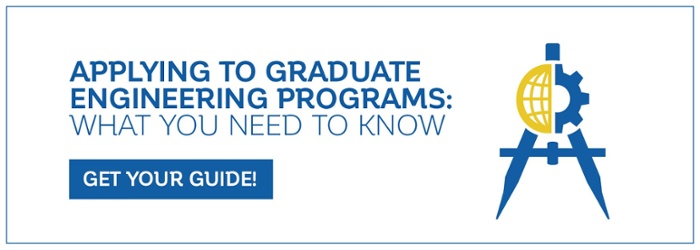
How to Write Your Master’s in Engineering Statement of Purpose
Are You Ready? Take the Engineering Admissions Quiz and Find Out!
Masters in Engineering Admissions: 9 Things You Need to Do to Get Accepted
Other Sample Essays
Cornell Office of Undergraduate Admissions
Search cornell admissions, cornell first-year writing supplement prompts.
In the online Common Application Writing Supplement, please respond to both the Cornell University essay question and the essay prompt that corresponds to the undergraduate college or school to which you are applying.
Cornell University Essay Question
In the aftermath of the U.S. Civil War, Ezra Cornell wrote, "I would found an institution where any person can find instruction in any study." For over 150 years, Cornell University has remained deeply committed to Ezra’s vision. Explain how your life experiences will help inform your contributions to a learning community devoted to “... any person … any study.” We encourage you to think broadly about your life experiences, including how local (e.g., family, school, neighborhood) or global communities you’ve been part of have helped shape your perspective. (350 word limit)
College- and School-Specific Essay Questions
College of agriculture and life sciences.
Required: Why are you drawn to studying the major you have selected? Please discuss how your interests and related experiences have influenced your choice. How will an education from the College of Agriculture and Life Sciences (CALS) at Cornell University specifically serve to support your learning, growth, and the pursuit of your goals? (650-word limit)
Instructions: The optional short-answer questions invite you to share additional information about your background, interests, and experiences as they relate to aspects of the Cornell CALS mission. The content of any responses submitted will be included in the holistic review of your application (which is also the case for any optional additional information submitted as part of your Common Application or uploaded through your Cornell Application Portal once you've applied).
Optional: At Cornell CALS, we aim to leave the world better than we found it, so we seek out those who are not simply driven to master their discipline, but who are also passionate about doing so to serve the public good. Please elaborate on an experience where you had a meaningful impact on people, a community, and/or an environment of importance to you. (200-word limit)
Optional: Cornell CALS is dedicated to purpose-driven study of the agricultural, life, environmental, and social sciences and welcomes students with interests that span a wide variety of disciplines. Given our agricultural history and commitment to educating the next generation of agriculturalists, please share if you have a background or interest in agriculture, regardless of your intended major. An "agricultural entity" for the purpose of this question is defined as cultivating soil, growing crops, and raising livestock (e.g., farm, ranch, greenhouse, vineyard, etc.).
Select all that apply:
- A primary source of income for my parent/guardian(s) comes from ownership of or employment by an agricultural entity.
- My extended family owns or operates an agricultural entity.
- I have experience working in an agricultural entity.
- I have interest in pursuing a career in an agricultural entity.
Please feel free to share additional details (optional). (100-word limit)
College of Architecture, Art, and Planning
How do your interests directly connect with your intended major at the College of Architecture, Art, and Planning (AAP)? Why architecture (B.Arch), art (BFA), or urban and regional studies (URS)? B. Arch applicants, please provide an example of how a creative project or passion sparks your motivation to pursue a 5-year professional degree program. BFA applicants may want to to consider how they could integrate a range of interests and available resources at Cornell into a coherent art practice. URS students may want to emphasize their enthusiasm and depth of interest in the study of urban and regional issues. (650 word limit)
College of Arts & Sciences
At the College of Arts and Sciences, curiosity will be your guide. Discuss how your passion for learning is shaping your academic journey, and what areas of study or majors excite you and why. Your response should convey how your interests align with the College, and how you would take advantage of the opportunities and curriculum in Arts and Sciences. (650 word limit)
Cornell Jeb E. Brooks School of Public Policy
Why are you drawn to studying public policy? Drawing on your experiences, tell us about why you are interested in your chosen major and how attending the Brooks School will help you achieve your life goals. (650 word limit)
Cornell SC Johnson College of Business
What kind of a business student are you? Using your personal, academic, or volunteer/work experiences, describe the topics or issues that you care about and why they are important to you. Your response should convey how your interests align with the school to which you are applying within the Cornell SC Johnson College of Business (Charles H. Dyson School of Applied Economics and Management or the Peter and Stephanie Nolan School of Hotel Administration). (650 word limit)
College of Engineering
Instructions: All applicants are required to write two supplemental essays. Each has a limit of 250 words. Essay 1 is required of all applicants. For Essay 2, you must choose between Question A and Question B.
Essay 1: Required response. (250-word limit)
How do your interests directly connect with Cornell Engineering? If you have an intended major, what draws you to that department at Cornell Engineering? If you are unsure what specific engineering field you would like to study, describe how your general interest in engineering most directly connects with Cornell Engineering. It may be helpful to concentrate on one or two things that you are most excited about.
Essay 2: Choose either Question A and Question B. (250-word limit)
Question A: Describe an engineering problem that impacts your local community. This could be your school, neighborhood, town, region, or a group you identify with. Describe one to three things you might do as an engineer to solve the problem.
Question B: Diversity in all forms is intrinsic to excellence in engineering. Engineering the best solutions to complex problems is often achieved by drawing from the diverse ingenuity of people from different backgrounds, lived experiences, and identities. How do you see yourself contributing to the diversity and/or the inclusion of the Cornell Engineering community? What is the unique voice you would bring to the Cornell Engineering community?
College of Human Ecology
How have your related experiences influenced your decision to apply to the College of Human Ecology (CHE)? How will your choice of major impact your goals and plans for the future? Your response should show us that your interests and aspirations align with CHE and your choice of major. (Refer to our essay application tips before you begin.) (650 word limit)
School of Industrial and Labor Relations
Using your personal, academic, or volunteer/work experiences, describe the topics or issues that you care about and why they are important to you. Your response should show us that your interests align with the ILR School. (650 word limit)
Top Enrollment Resources
- How to Apply
- Visit & Connect
- Application Status
- Frequently Asked Questions
- Office of Financial Aid
- Apply for Aid
- Cost to Attend
- Types of Aid
- Office of the Registrar
- Academic Calendar
- Classes and Enrollment
- Courses of Study
Still need help? Look at the Frequently Asked Questions , or contact us .

Choose Your Test
Sat / act prep online guides and tips, 3 top tips for a stand-out cornell essay.
College Essays
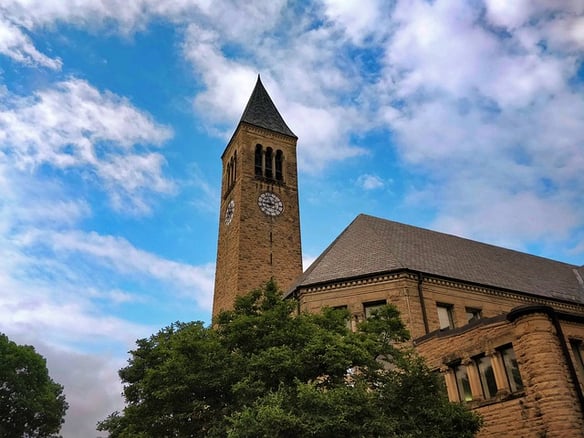
For the 2022–2023 admission cycle, Cornell admitted less than 8% of their total applicant pool. To be one of the students who gets accepted, you need to write amazing essays as part of your Cornell University application.
In this article, we'll outline the different types of essays you need to write for your Cornell University application and teach you how to write a Cornell supplemental essay that will help you stand out from the thousands of other applicants.
What Are the Cornell Essay Prompts?
Most students applying to Cornell only need to answer one Cornell supplemental essay prompt as part of their application (engineering students are the exception).
Don't get too excited though, because this one essay carries a lot of weight. The word limit is on the longer side (usually around 650 words), and the topic depends on which school within the university that you're applying to.
Cornell University consists of many smaller colleges, each with their own required Cornell writing supplement.
Your Cornell essay prompt will correspond to the school that you plan to study at, so give your future as a Cornell student some thought before you start writing. Be sure to write about the subject or area of study that you are currently interested in, even if that may change when you get to college. As with all college admissions essays, authenticity is key. You may have myriad scholastic interests, but for this essay, stick with what you know best and are most passionate about. Your potential topic must correspond with the areas of study at the college too.
The Cornell essay prompts give ample space for you to express yourself and reveal a more complete portrait of who you are as a student and human simply because of the word limit. You can say a lot in 650 words, so take advantage of it!

2023–2024 Cornell Supplement Essay Questions
Here are the essays and instructions as shown on the Cornell University admissions website :
College Interest Essays
The primary focus of your college interest essay should be what you intend to study at Cornell. In the online Common Application Writing Supplement, please respond to the essay question below (maximum of 650 words) that corresponds to the undergraduate college or school to which you are applying. Note that the College of Engineering is the only college that requires multiple shorter essays, and the College of Agriculture and Life Sciences lists one required and two optional essays.
Here are this year's prompts:
- Brooks School of Public Policy: Why are you drawn to studying public policy? Drawing on your experiences, tell us about why you are interested in your chosen major and how attending the Brooks School will help you achieve your life goals.
- Required: Why are you drawn to studying the major you have selected? Please discuss how your interests and related experiences have influenced your choice. How will an education from the College of Agriculture and Life Sciences (CALS) at Cornell University specifically serve to support your learning, growth, and the pursuit of your goals?
- Optional: At Cornell CALS, we aim to leave the world better than we found it, so we seek out those who are not simply driven to master their discipline, but who are also passionate about doing so to serve the public good. Please elaborate on an experience where you had a meaningful mpact on people, a community, and/or an environment of importance to you (200-word limit).
- A primary source of income for my parent/guardian(s) comes from ownership of or employment by an agricultural entity.
- My extended family owns or operates an agricultural entity.
- I have experience working in an agricultural entity.
- I have interest in pursuing a career in an agricultural entity.
Please feel free to share additional details (optional) (100-word limit).
- College of Architecture, Art, and Planning: How do your interests directly connect with your intended major at the College of Architecture, Art, and Planning (AAP)? Why architecture (B.Arch), art (BFA), or urban and regional studies (URS)? B. Arch applicants, please provide an example of how a creative project or passion sparks your motivation to pursue a 5-year professional degree program. BFA applicants may want to to consider how they could integrate a range of interests and available resources at Cornell into a coherent art practice. URS students may want to emphasize their enthusiasm and depth of interest in the study of urban and regional issues.
- College of Arts and Sciences: At the College of Arts and Sciences, curiosity will be your guide. Discuss how your passion for learning is shaping your academic journey, and what areas of study or majors excite you and why. Your response should convey how your interests align with the College, and how you would take advantage of the opportunities and curriculum in Arts and Sciences. .
- Cornell SC Johnson College of Business: What kind of a business student are you? Using your personal, academic, or volunteer/work experiences, describe the topics or issues that you care about and why they are important to you. Your response should convey how your interests align with the school to which you are applying within the Cornell SC Johnson College of Business (Charles H. Dyson School of Applied Economics and Management or the Peter and Stephanie Nolan School of Hotel Administration).
- Essay 1 (Required response): How do your interests directly connect with Cornell Engineering? If you have an intended major, what draws you to that department at Cornell Engineering? If you are unsure what specific engineering field you would like to study, describe how your general interest in engineering most directly connects with Cornell Engineering. It may be helpful to concentrate on one or two things that you are most excited about.
- Question A: Describe an engineering problem that impacts your local community. This could be your school, neighborhood, town, region, or a group you identify with. Describe one to three things you might do as an engineer to solve the problem.
- Question B: Diversity in all forms is intrinsic to excellence in engineering. Engineering the best solutions to complex problems is often achieved by drawing from the diverse ingenuity of people from different backgrounds, lived experiences, and identities. How do you see yourself contributing to the diversity and/or the inclusion of the Cornell Engineering community? What is the unique voice you would bring to the Cornell Engineering community?
- College of Human Ecology: How have your related experiences influenced your decision to apply to the College of Human Ecology (CHE)? How will your choice of major impact your goals and plans for the future? Your response should show us that your interests and aspirations align with CHE and your choice of major. (Refer to our essay application tips before you begin.)
- School of Industrial and Labor Relations: Using your personal, academic, or volunteer/work experiences, describe the topics or issues that you care about and why they are important to you. Your response should show us that your interests align with the ILR School.

Cornell Supplement Essays Analyzed
In this section, we'll take a look at each Cornell supplemental essay prompt in depth.
Remember, you may only answer one prompt for your application.
We'll also give tips for how to best approach answering the individual essay questions. Some tips will apply to all of the questions, but we will highlight the important differences for each program.
Brooks School of Public Policy
Why are you drawn to studying public policy? Drawing on your experiences, tell us about why you are interested in your chosen major and how attending the Brooks School will help you achieve your life goals.
To apply to the Brooks School of Public Policy, you'll need to select a specific major . Be specific about what you want to study and why, and make sure that you clearly state why the Brooks School in particular is the best option for you.
Don't panic if you don't have a lot of experience with your chosen major yet! Instead, think about why you're interested in this field and what experiences led you to it . Maybe you're inspired by something you personally experienced, by research you conducted, or by a documentary or article you read.
You should also research the history of the Brooks School and its different programs. Choose the one that best aligns with your goals , and look to see whether any notable faculty or alumni might further inspire you.
College of Agriculture and Life Sciences
Applicants must answer one required essay, but also have the option to answer two optional essays. We'll break down your options below.
Required: Why are you drawn to studying the major you have selected? Please discuss how your interests and related experiences have influenced your choice. How will an education from the College of Agriculture and Life Sciences (CALS) at Cornell University specifically serve to support your learning, growth, and the pursuit of your goals ?
The College of Agriculture and Life Sciences asks you to have an idea of your major as you apply. In your essay, you should commit to one major and be specific about why it's important to you. Choose a topic of genuine interest to you and that you have a personal connection with, even if that personal connection consists solely of articles you've read and documentaries you've seen.
Do your research about the topic and the school. Dedicate some time to reading about CALS—its history, its current faculty, and its notable alumni. Is there anyone from your research who you can relate to or who you think of as inspiring? Are there professors whom you are looking forward to working with?
Lean into the school's reputation, and choose something specific to write about that has a personal connection to you. For example, instead of writing about homesteading trends across the country, write about a local farm in your area that you visited as a child or how you got interested in food science.
You could also write about your personal connection to a specific project of a professor who teaches in the Cornell College of Agriculture and Life Sciences.
Optional: At Cornell CALS, we aim to leave the world better than we found it, so we seek out those who are not simply driven to master their discipline, but who are also passionate about doing so to serve the public good. Please elaborate on an experience where you had a meaningful impact on people, a community, and/or an environment of importance to you. (200-word limit)
This is a great opportunity for you to show how you want to use your passion for the greater good . Because the prompt tells you to define your impact "on people, a community" broadly, you have a lot of leeway here. Think about your local neighborhood, your family and friends, any trips you may have taken through school or service organizations—anything that shows your commitment to serving others.
Optional: Cornell CALS is dedicated to purpose-driven study of the agricultural, life, environmental, and social sciences and welcomes students with interests that span a wide variety of disciplines. Given our agricultural history and commitment to educating the next generation of agriculturalists, please share if you have a background or interest in agriculture, regardless of your intended major. An "agricultural entity" for the purpose of this question is defined as cultivating soil, growing crops, and raising livestock (e.g., farm, ranch, greenhouse, vineyard, etc.). Select all that apply: A primary source of income for my parent/guardian(s) comes from ownership of or employment by an agricultural entity . My extended family owns or operates an agricultural entity. I have experience working in an agricultural entity. I have interest in pursuing a career in an agricultural entity. Please feel free to share additional details (optional). (100-word limit)
This isn't an essay prompt so much as a way for you to self-identify . If any of these options apply to you, make sure to check them!
College of Architecture, Art, and Planning
How do your interests directly connect with your intended major at the College of Architecture, Art, and Planning (AAP)? Why architecture (B.Arch), art (BFA), or urban and regional studies (URS)? B. Arch applicants, please provide an example of how a creative project or passion sparks your motivation to pursue a 5-year professional degree program. BFA applicants may want to consider how they could integrate a range of interests and available resources at Cornell into a coherent art practice. URS students may want to emphasize their enthusiasm and depth of interest in the study of urban and regional issues.
The College of Architecture, Art, and Planning wants to know how you connect your creative passions with your scholastic interests here. Think about what you learn about or engage with of your own volition, not just because you're required to. In other words, when you fall down an Internet rabbit hole, what are you often researching?
For example, what design trends fascinate you? Which artists, photographers, or architects do you gravitate toward? What sort of urban planning projects would you be inspired to pursue? What transportation, housing, or infrastructure issues in your community or region do you want to work toward solving? Keep in mind that you'll want to not just describe who or what motivates you but also why .
Note also that the question asks you to describe either a "passion" or a "creative project," so if you've already had the opportunity to work on an art installation or design project that has inspired you to pursue your degree at Cornell, then describe that project and explain why it motivates you. Remember, the prompt asks about passions, as well as quirks. Don't feel embarrassed! Share something personal about yourself. Maybe you love watching old cinema or make your own pop-up cards for your family. Maybe you watch hundreds of hours of videos from YouTube photographers. Maybe you visit the City Hall of whatever new town you visit.
Whatever you choose, make sure you elaborate on why you're interested in it and how it's affected your life.

College of Arts and Sciences
At the College of Arts and Sciences, curiosity will be your guide. Discuss how your passion for learning is shaping your academic journey, and what areas of study or majors excite you and why. Your response should convey how your interests align with the College, and how you would take advantage of the opportunities and curriculum in Arts and Sciences .
The College of Arts and Sciences is the most generalized school of study at Cornell University, and the admissions essay reflects that. If you know that you love to learn but aren't sure what your career will look like after college, it's likely you'll be applying here.
Don't be fooled! Just because the question is broad, you don't have to write a broad essay in response. Don't feel like you have to demonstrate an interest in both Russian literature and molecular biology. Rather, describe your real intellectual pursuits with honesty and sincerity .
You don't have to have huge aspirations or a fancy reason for your intellectual pursuits. Stay true to yourself. If you're interested in Tudor history because of some historical fiction novels you read as a child, that's fine! You can say that. Just be sure to always tie it back to how Cornell's academics will let you study your passion.
If you have multiple areas of study that you are passionate about, you may write about them—but don't write about more than two or three at the most. Otherwise, your essay will feel more like a list rather than an in-depth exploration of your actual interests.
If you do choose to write about multiple interests, be sure to connect them back to you and your individual experience as a Cornell student and community member.
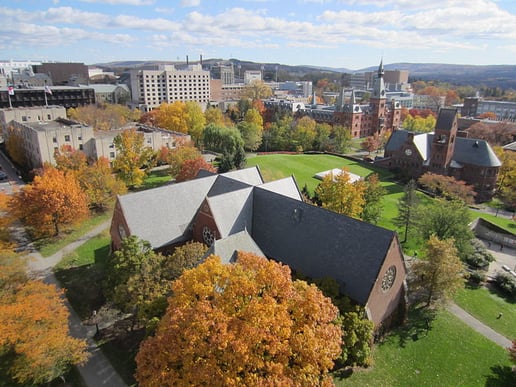
Cornell SC Johnson College of Business
What kind of a business student are you? Using your personal, academic, or volunteer/work experiences, describe the topics or issues that you care about and why they are important to you. Your response should convey how your interests align with the school to which you are applying within the Cornell SC Johnson College of Business (Charles H. Dyson School of Applied Economics and Management or the Peter and Stephanie Nolan School of Hotel Administration).
For the Johnson College of Business, the first part of the essay question asks you to think about the business-related topics or issues you are interested in; how they're connected with your life, academic, volunteer, or work experiences; and why. The next part of the prompt invites you to discuss your interests in terms of what's on offer at the business school.
Your best approach, then, is to r esearch the programs so that you know exactly what their approach to business, management, economics, and hospitality is. What topics do they offer classes on? What specific research areas do their professors study? Then, think about what you most often find yourself thinking, reading, or talking about that relates to two or three of these topics. Those connections should be the core of your essay.
For example, did a history class inspire you to research the evolution of print advertising to digital marketing? Did moving from abroad get you interested in international development? Did you grow up in a family of entrepreneurs and want to further explore how to build your own business?
As you build your response, keep in mind that your essay should also indicate why you want to attend Cornell's College of Business rather than any other and how you'll take advantage of the resources it offers. So do some research on what makes the college stand out from others. You can list specific classes you'd like to take or professors you'd like to study with. Doing so will show that you're interested in Cornell, not just any old business school.
If you're specifically interested in the School of Hotel Adminitration and you're having trouble coming up with a topic, use the list of global hospitality industry topics as a jumping-off point. Which are you interested in? How did you become interested in them? Why do you care so much about these topics? What type of career do you want in this industry?
When writing about the experiences that define you and your passions as a future business major, don't generalize. Instead, use stories, anecdotes, and details that actually happened and that show your personality traits and motivations. Follow that old grade-school writing rule: show; don't tell.
College of Engineering
All applicants are required to write two supplemental essays. Each has a limit of 250 words. Essay 1 is required of all applicants. For Essay 2, you must choose between Question A and Question B.
Essay 1 (Required): How do your interests directly connect with Cornell Engineering? If you have an intended major, what draws you to that department at Cornell Engineering? If you are unsure what specific engineering field you would like to study, describe how your general interest in engineering most directly connects with Cornell Engineering. It may be helpful to concentrate on one or two things that you are most excited about.
Essay 2 (Required):
And now for something a little different. Instead of writing one long essay, College of Engineering applicants have to write two shorter essays, and they get to choose from three prompts.
Each of the prompts seeks to understand why you want to study engineering and why you believe you'd excel at engineering. For all prompts, be sure to go beyond the surface level with your answers. Don't just say that you want a steady job after graduation. Cornell's College of Engineering wants to see that you have both ambition and interesting ideas.
The first prompt is required and is the most similar to the prompts for the other colleges. It's a basic "why us?" prompt, in which you explain to Cornell what it is about their College of Engineering that made you want to apply. Again, the more specific you can be here, the better. Mention things such as specific professors, classes, or internship opportunities to strengthen your essay.
The second prompt is a chance for you to put your thinking cap on! This is a great place for you to shine. Your job here is to choose a problem that is important to you —and say a little about why before diving into the prompt itself. If you know what type of engineering you want to study, make sure the problem you're addressing can be solved through that subfield. If you're not decided, you have a little more leeway.
For the third prompt, you're focusing on diversity and how you'll add to it. This doesn't just need to be racial diversity; think about what your unique life experiences can bring to Cornell's College of Engineering and how that would contribute to its diversity.
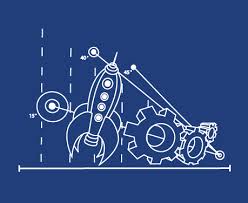
College of Human Ecology
How have your related experiences influenced your decision to apply to the College of Human Ecology (CHE)? How will your choice of major impact your goals and plans for the future? Your response should show us that your interests and aspirations align with CHE and your choice of major. (Refer to our essay application tips before you begin.)
This essay prompt gives you lots of room for creativity. That being said, heed this caveat: don't get carried away in stating your grandiose mission for solving the world's problems. As with the other essay prompts, specificity is key.
For the first question, choose an example from your life to illustrate your answer. Pick something that has truly been formative in your educational and professional goals , dive in deep, and write from the heart.
For example, if you're interested in studying policy analysis and management, you could talk about how your experience with social welfare programs has affected your life. Or if you're looking to be part of the fiber science and apparel design program, you could talk about why clothing has played such an important part in your life and your passion for fashion design.
Be sure to include your future goals in your answer. The College of Human Ecology has a very specific focus—you'll want to reflect that as you discuss your career and life aspirations.
School of Industrial and Labor Relations
Using your personal, academic, or volunteer/work experiences, describe the topics or issues that you care about and why they are important to you. Your response should show us that your interests align with the ILR School.
This essay is a great opportunity to show off your academic side. You get to write about your topics of study and describe how you will continue to make it a part of your life in your college career and beyond.
You don't have to limit your answer to school experiences. Academic pursuits can grow from hobbies, travels, or personal experiences. Do you take on leadership roles in your religious community? Have you had a particularly influential summer job? As long as you relate the experience back to academics, you are golden.
You should also specify why ILR is the right college at Cornell for you to pursue these interests. What can you study at ILR that you can't study in Cornell's other colleges, such as the College of Arts and Sciences? It can be helpful to list specific courses or tracks of study at ILR that reflect your intellectual interests. Remember, the prompt specifically asks why ILR is your Cornell college of choice.
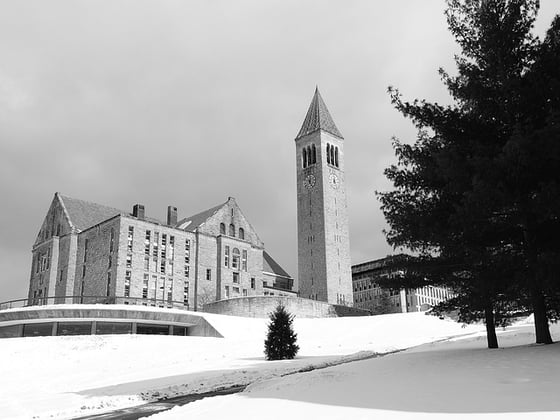
How to Write a Great Cornell Essay
Regardless of which Cornell essay prompt you're responding to, you should keep in mind the following tips for how to write a great Cornell essay.
#1: Use Your Own Voice
The point of a college essay is to give the admissions committee a chance to get to know you beyond your test scores, grades, and honors.
Your admissions essays are your opportunity to make yourself come alive for the essay readers and to present yourself as a fully fleshed-out person.
You should, then, make sure that the person you're presenting in your college essays is yourself. Don't try to emulate what you think the committee wants to hear or try to act like someone you're not.
If you lie or exaggerate, your essay will come across as insincere, which will diminish its effectiveness. Stick to telling real stories about the person you really are, not who you think Cornell wants you to be.
#2: Avoid Clichés and Overused Phrases
When writing your Cornell essay, try to avoid using clichés or overused quotes or phrases.
These include quotations that have been quoted to death and phrases or idioms that are overused in daily life. The college admissions committee has probably seen numerous essays from students who have grand plans to change the world. Only talk about changing the world if you have legitimate interests to back it up.
Strive for originality and avoid using clichés, which take away from the strength and sincerity of your work.
#3: Check Your Work
It should almost go without saying, but you want to make sure your Cornell essay is the strongest example of your work possible. Before you turn in your Cornell application, make sure to edit and proofread your essays.
Your work should be free of spelling and grammar errors. Make sure to run your essays through a spelling and grammar check before you submit.
It's a good idea to have someone else read your Cornell essay too. You can seek a second opinion on your work from a parent, teacher, or friend. Ask them whether your work represents you as a student and person. Have them check to make sure you haven't missed any small writing errors. Having a second opinion will help your work be the best it possibly can be.
Recap: Writing a Stellar Cornell Essay
The Cornell essay prompts give you a chance to really show the admissions committee who you are. Regardless of the question you're answering, remember to follow these basic dos and don'ts as you're writing:
- Be authentic and honest.
- Be specific when citing people, places, and things.
- Strive for brevity and clarity; less is more!
- Be yourself, and do your research—both will shine through in your essays!
- Base your essays on what you think the Cornell application committee wants to hear.
- Use clichés or broad sweeping statements.
- Try too hard to be funny and original. Be genuine and your positive attributes will be visible to the committee.
What's Next?
Are you working on the Common App essay as part of your application? Read our breakdown of the Common App prompts and our guide to picking the best prompt for you .
If you're planning to take the SAT or ACT as part of your application , try out some of our famous test prep guides, like " How to Get a Perfect Score on the SAT " and " 15 Key ACT Test Day Tips ."

Hayley Milliman is a former teacher turned writer who blogs about education, history, and technology. When she was a teacher, Hayley's students regularly scored in the 99th percentile thanks to her passion for making topics digestible and accessible. In addition to her work for PrepScholar, Hayley is the author of Museum Hack's Guide to History's Fiercest Females.
Student and Parent Forum
Our new student and parent forum, at ExpertHub.PrepScholar.com , allow you to interact with your peers and the PrepScholar staff. See how other students and parents are navigating high school, college, and the college admissions process. Ask questions; get answers.

Ask a Question Below
Have any questions about this article or other topics? Ask below and we'll reply!
Improve With Our Famous Guides
- For All Students
The 5 Strategies You Must Be Using to Improve 160+ SAT Points
How to Get a Perfect 1600, by a Perfect Scorer
Series: How to Get 800 on Each SAT Section:
Score 800 on SAT Math
Score 800 on SAT Reading
Score 800 on SAT Writing
Series: How to Get to 600 on Each SAT Section:
Score 600 on SAT Math
Score 600 on SAT Reading
Score 600 on SAT Writing
Free Complete Official SAT Practice Tests
What SAT Target Score Should You Be Aiming For?
15 Strategies to Improve Your SAT Essay
The 5 Strategies You Must Be Using to Improve 4+ ACT Points
How to Get a Perfect 36 ACT, by a Perfect Scorer
Series: How to Get 36 on Each ACT Section:
36 on ACT English
36 on ACT Math
36 on ACT Reading
36 on ACT Science
Series: How to Get to 24 on Each ACT Section:
24 on ACT English
24 on ACT Math
24 on ACT Reading
24 on ACT Science
What ACT target score should you be aiming for?
ACT Vocabulary You Must Know
ACT Writing: 15 Tips to Raise Your Essay Score
How to Get Into Harvard and the Ivy League
How to Get a Perfect 4.0 GPA
How to Write an Amazing College Essay
What Exactly Are Colleges Looking For?
Is the ACT easier than the SAT? A Comprehensive Guide
Should you retake your SAT or ACT?
When should you take the SAT or ACT?
Stay Informed
Get the latest articles and test prep tips!
Looking for Graduate School Test Prep?
Check out our top-rated graduate blogs here:
GRE Online Prep Blog
GMAT Online Prep Blog
TOEFL Online Prep Blog
Holly R. "I am absolutely overjoyed and cannot thank you enough for helping me!”
Home — Essay Samples — Science — Technology & Engineering — Engineering
Essays on Engineering
Crafting an engineering essay isn't just about equations and diagrams; it's a blend of science, creativity, and effective communication. We're here to sprinkle some wisdom your way with tips, prompts, and a bunch of inspiring ideas to get those engineering gears turning.
1. Prompts to Get Your Brain Buzzing
Let's explore some sample prompts. These will help you understand the types of questions you might encounter:
- Discuss the impact of emerging technologies on the field of civil engineering.
- Analyze the environmental sustainability challenges in modern electrical engineering projects.
- Examine the role of robotics in revolutionizing manufacturing processes.
- Explore the ethical considerations in engineering decision-making, using a real-life case study.
These prompts serve as springboards for your essay, guiding your thoughts and helping you structure your content effectively.
2. Brainstorming Epic Essay Topics
Choosing the right topic is the first step towards crafting an outstanding engineering essay. Here are some points to consider while brainstorming:
- Passion: Pick a topic that genuinely excites you. Your enthusiasm will shine through in your writing.
- Relevance: Ensure your chosen topic is relevant to current engineering trends or issues.
- Originality: Avoid well-trodden paths and aim for a unique angle or fresh perspective.
- Research Potential: Confirm that there's enough research material available to support your chosen topic.
- Practicality: Consider the practical aspects of your topic and whether it can be explored effectively in an essay format.
Once you've considered these points, you'll be better equipped to select a topic that'll make your essay stand out.
3. 20 Engineering Essay Topics to Ignite Your Imagination
Now, let's get those creative engineering juices flowing with a list of unique and thought-provoking essay topics:
- 3D Printing Revolution: Explore the impact of 3D printing technology on various engineering disciplines.
- Engineering Marvels: Analyze a renowned engineering project like the Panama Canal or the Burj Khalifa, highlighting its challenges and innovations.
- AI in Healthcare: Discuss the role of artificial intelligence in improving healthcare technology and patient outcomes.
- Sustainable Energy Solutions: Examine the advancements in renewable energy sources and their potential to combat climate change.
- Space Exploration and Engineering: Explore the engineering feats behind space missions, such as the Mars rovers or the International Space Station.
- Green Building Technologies: Analyze the latest trends in eco-friendly construction methods and materials.
- The Ethics of Autonomous Vehicles: Discuss the ethical dilemmas surrounding self-driving cars and their impact on society.
- Water Resource Management: Examine innovative engineering solutions for sustainable water supply and management.
- The Future of Transportation: Explore the possibilities of hyperloop technology and its potential to revolutionize transportation.
- Engineering in Disaster Relief: Analyze the role of engineering in disaster response and recovery efforts.
- Nanotechnology Breakthroughs: Discuss the recent breakthroughs and applications of nanotechnology in various engineering fields.
- Biomechanics and Sports Engineering: Examine the engineering behind sports equipment and how it enhances athlete performance.
- Space Elevators: Explore the theoretical concept of space elevators and their feasibility for future space travel.
- Renewable Energy Storage: Analyze innovative methods for storing renewable energy efficiently.
- Engineering in Art Conservation: Discuss how engineering techniques are used to preserve and restore valuable works of art and cultural heritage.
- Humanoid Robotics: Examine the development of humanoid robots and their potential applications in various industries.
- The Role of Engineers in Climate Change Mitigation: Discuss how engineers are actively working to combat climate change through sustainable solutions.
- Environmental Impact of E-Waste: Analyze the environmental consequences of electronic waste and potential engineering solutions.
- Engineering Challenges in Underwater Exploration: Explore the unique challenges engineers face in designing equipment for underwater exploration.
- Smart Cities: Discuss the concept of smart cities and how engineering plays a pivotal role in their development.
These topics offer a wide range of exciting possibilities to explore in your engineering essay. Pick one that resonates with your interests and dive right in!
4. Inspiration for Crafting Stellar Paragraphs
Now, let's sprinkle some inspiration on your essay with sample paragraphs and phrases that can elevate your writing:
Paragraph 1: Introduction
Engineering is the backbone of modern civilization, driving innovation, and shaping our world. In this essay, we embark on a thrilling journey through the fascinating realm of engineering, exploring its diverse facets, challenges, and contributions to society. From cutting-edge technologies to sustainable solutions, we'll delve deep into the heart of engineering excellence.
Paragraph 2: The Impact of 3D Printing Technology
3D printing technology has revolutionized the way we design and manufacture products across various industries. Its applications span from aerospace to healthcare, offering cost-effective and efficient solutions. For instance, in the aerospace sector, 3D printing has enabled the creation of intricate and lightweight components, reducing fuel consumption and carbon emissions. This breakthrough technology not only enhances engineering efficiency but also paves the way for a more sustainable future.
Paragraph 3: Ethics in Engineering Decision-Making
Engineering isn't just about technical know-how; it also involves ethical considerations that can have far-reaching consequences. Take the example of the decision-making process in designing autonomous vehicles. Engineers face complex moral dilemmas, such as how an autonomous car should prioritize passenger safety over pedestrians or vice versa. These ethical questions require careful examination and transparent discussions to ensure that engineering advancements align with societal values and priorities.
Paragraph 4: The Future of Sustainable Energy
As the world grapples with the impending climate crisis, engineers play a pivotal role in developing sustainable energy solutions. Solar panels, wind turbines, and energy-efficient buildings are just a few examples of engineering innovations aimed at reducing carbon footprints. For instance, the incorporation of energy-efficient materials in construction not only lowers energy consumption but also contributes to the longevity of buildings, reducing maintenance costs. This intersection of engineering and sustainability holds the promise of a greener and cleaner future.
Paragraph 5: The Challenges of Space Exploration
Engineering marvels are prominently displayed in the field of space exploration. The challenges engineers face are immense, from designing spacecraft capable of surviving the harsh conditions of space to ensuring the safety of astronauts during extended missions. The Mars rovers, with their remarkable ability to explore the Red Planet remotely, showcase the engineering ingenuity required for interplanetary exploration. These endeavors expand our understanding of the universe and inspire the next generation of engineers to reach for the stars.
And there you have it, dear engineering essay enthusiast! Armed with prompts, brainstorming tips, unique topics, and inspirational sample paragraphs, you're well-equipped to embark on your journey of crafting an exceptional engineering essay. So, roll up your sleeves, grab your keyboard, and let your engineering brilliance shine through your words. Happy writing!
The Tachometer: a Key Instrument in Automotive Engineering
Pros and cons of genetic engineering: the need for proper regulation, made-to-order essay as fast as you need it.
Each essay is customized to cater to your unique preferences
+ experts online
Exploring The Pros and Cons of Genetic Engineering
Engineering: short info about the most important things, the importance of science in engineering for human, why i choose a degree in engineering, let us write you an essay from scratch.
- 450+ experts on 30 subjects ready to help
- Custom essay delivered in as few as 3 hours
My Devotion to Engineering Studies
Communication of engineers with the general public, my motivation to further study engineering and machinery, my motivational letter: mechanical engineering, get a personalized essay in under 3 hours.
Expert-written essays crafted with your exact needs in mind
Ethics for Software Engineering
Values professionalism, dedication and responsibility in engineering culture, my motivation to study at cornell’s college of engineering, civil engineering through the history, all you need to know about software engineering, the job in computer engineering, my goal to build a career in industrial engineering, interest in the field of environmental engineering, statement of purpose (electronics and communication engineering), my passion in electrical and computer engineering, my goal to pursue a career in computer science and engineering, my letter of motivation: electrical and electronics engineering, heat exchanger technology and applications in heat exchanger engineering, drones' capacity in civil engineering, system science and engineering helping bedridden patients, why i opt industrial engineering in my undergraduate, use of biofuel as a sustainable engineering solution, finite element method in the engineering, the role of electronics and telecommunication engineering education in my life, engineering education research statement.
Engineering is a discipline and profession that applies scientific, mathematical, and technical knowledge to design, create, improve, and innovate various systems, structures, machines, and processes to address practical problems and meet human needs. It involves the application of scientific principles, empirical evidence, and practical expertise to develop practical solutions that improve the quality of life, enhance efficiency, and contribute to societal advancements.
Engineering has its origins in the earliest human civilizations, where primitive engineering techniques were employed to build structures and develop technologies to meet various needs. The history of engineering is a testament to humanity's ingenuity and problem-solving abilities. The roots of engineering can be traced back to ancient civilizations such as Mesopotamia, Egypt, and Indus Valley, where advancements in agriculture, irrigation systems, and construction techniques took place. These early developments laid the foundation for engineering principles that are still relevant today. Over time, engineering evolved and diversified into various disciplines such as civil engineering, mechanical engineering, electrical engineering, and many more. The Industrial Revolution in the 18th and 19th centuries marked a significant milestone in engineering history, with the emergence of innovative technologies and machinery that revolutionized manufacturing processes and transportation systems. Throughout the 20th century, engineering continued to advance rapidly, driven by scientific discoveries and technological breakthroughs. The fields of aerospace engineering, computer engineering, and biomedical engineering, among others, emerged, shaping the modern world and expanding the boundaries of human capabilities. Today, engineering plays a vital role in addressing global challenges and improving quality of life. Engineers are at the forefront of designing sustainable infrastructure, developing renewable energy solutions, creating advanced technologies, and finding innovative solutions to complex problems.
Civil Engineering: This branch deals with the design, construction, and maintenance of infrastructure such as buildings, bridges, roads, dams, and water supply systems. Mechanical Engineering: Mechanical engineers work on the design, development, and manufacturing of machinery, engines, vehicles, and other mechanical systems. Electrical Engineering: Electrical engineers specialize in the study and application of electrical systems, including power generation, transmission, and utilization, as well as electronics and telecommunications. Chemical Engineering: Chemical engineers are involved in the design and operation of processes that transform raw materials into useful products, such as pharmaceuticals, fuels, and chemicals. Aerospace Engineering: Aerospace engineers focus on the design, development, and testing of aircraft, spacecraft, and related technologies. Computer Engineering: Computer engineers work on the design and development of computer systems, hardware, and software, including areas like computer networks, cybersecurity, and artificial intelligence. Environmental Engineering: Environmental engineers work to protect and improve the environment by designing sustainable solutions for waste management, pollution control, and resource conservation. Biomedical Engineering: Biomedical engineers combine engineering principles with medical and biological sciences to develop solutions for healthcare, including medical devices, prosthetics, and imaging systems.
Nikola Tesla: A Serbian-American inventor and electrical engineer, Tesla's work revolutionized the field of electrical power and laid the foundation for the development of alternating current (AC) systems. Leonardo da Vinci: Although best known as an artist, da Vinci was also an engineer and inventor. His designs and sketches showcased his visionary ideas for inventions such as flying machines, bridges, and military weapons. Thomas Edison: An American inventor and businessman, Edison is credited with numerous inventions, including the practical electric light bulb, phonograph, and motion picture camera, which revolutionized the modern world. Grace Hopper: An American computer scientist and naval officer, Hopper played a pivotal role in the development of computer programming languages. Her work on the development of COBOL (Common Business-Oriented Language) paved the way for modern software engineering. Elon Musk: A contemporary entrepreneur and engineer, Musk has made significant contributions to various fields, including electric vehicles (Tesla), space exploration (SpaceX), and renewable energy (SolarCity).
Innovation and Advancement: Engineering drives innovation by developing new technologies, products, and solutions to address societal needs. It fosters advancements in various fields, including transportation, communication, healthcare, energy, and more. Infrastructure Development: Engineers design and construct critical infrastructure such as buildings, bridges, roads, and transportation systems. These structures are the backbone of societies, facilitating economic growth, connectivity, and improved quality of life. Problem Solving: Engineers are problem solvers, using scientific and mathematical principles to analyze complex challenges and develop practical solutions. Their expertise is essential in finding sustainable and efficient ways to tackle global issues like climate change, pollution, and resource scarcity. Economic Growth: Engineering contributes to economic growth by fostering innovation, creating job opportunities, and driving productivity. It supports industries and entrepreneurship, leading to the development of new businesses and the generation of wealth. Safety and Sustainability: Engineers play a critical role in ensuring the safety and sustainability of our built environment. They develop and implement measures to mitigate risks, protect the environment, and promote sustainable practices in areas such as waste management, renewable energy, and urban planning. Global Challenges: Engineering is instrumental in addressing global challenges such as climate change, water scarcity, and healthcare accessibility. Through sustainable engineering practices, efficient resource management, and the development of resilient infrastructure, engineers contribute to a more sustainable and inclusive future.
1. The word "engineer" is derived from the Latin word "ingeniator," which means "clever contriver" or "deviser of engines." 2. The Great Wall of China, one of the most iconic engineering marvels, spans over 13,000 miles (21,196 kilometers) and took centuries to build. 3. The world's tallest man-made structure, the Burj Khalifa in Dubai, stands at a height of 2,717 feet (828 meters) and required the expertise of thousands of engineers. 4. The Panama Canal, an engineering feat completed in 1914, shortened the sea journey between the Atlantic and Pacific Oceans by approximately 8,000 nautical miles. 5. The Hoover Dam, located on the border of Nevada and Arizona in the United States, generates enough electricity to serve over 1.3 million people and provides water to millions of acres of farmland. 6. According to the American Society for Engineering Education, the number of engineering bachelor's degrees awarded in the United States has been steadily increasing, with over 114,000 degrees awarded in the 2019-2020 academic year.
Engineering is a topic of utmost importance to explore and discuss in an essay due to its profound impact on society and the world we live in. This field plays a crucial role in shaping our infrastructure, technology, and quality of life. By studying engineering, we gain insights into the innovative solutions that engineers develop to address complex challenges and improve various aspects of our lives. An essay on engineering allows us to delve into the diverse branches of engineering, such as civil, mechanical, electrical, and biomedical, highlighting their unique contributions to society. It enables us to explore the fascinating history of engineering, from ancient marvels to modern advancements, showcasing humanity's quest for progress and innovation. Moreover, engineering is intricately linked to key global issues, including sustainability, renewable energy, transportation, healthcare, and urban development. By examining these topics in an essay, we can explore the ways engineers contribute to finding sustainable solutions, mitigating environmental impact, and creating a better future for all.
1. Bucciarelli, L. L. (1994). Engineering philosophy. Springer. 2. Budynas, R. G., & Nisbett, J. K. (2016). Shigley's mechanical engineering design (10th ed.). McGraw-Hill Education. 3. Dowling, N. E., & Carew, A. L. (2015). Engineering your future: A comprehensive introduction to engineering (9th ed.). Oxford University Press. 4. Gere, J. M., & Goodno, B. J. (2017). Mechanics of materials (9th ed.). Cengage Learning. 5. Helsel, S. C., & Helsel, J. L. (2012). Engineering ethics: Concepts and cases. Cengage Learning. 6. Hillier, F. S., Lieberman, G. J., & Lieberman, M. A. (2013). Introduction to operations research (10th ed.). McGraw-Hill Education. 7. Kutz, M. (Ed.). (2016). Mechanical engineers' handbook: Materials and engineering mechanics (4th ed.). Wiley. 8. Moran, M. J., Shapiro, H. N., Boettner, D. D., & Bailey, M. B. (2010). Fundamentals of engineering thermodynamics (7th ed.). Wiley. 9. O'Brien, J. A., & Marakas, G. M. (2010). Management information systems (10th ed.). McGraw-Hill Education. 10. Shigley, J. E., & Budynas, R. G. (2014). Mechanical engineering design (10th ed.). McGraw-Hill Education.
Relevant topics
- Genetic Engineering
- Natural Selection
- Time Travel
- Charles Darwin
- Stephen Hawking
- Space Exploration
By clicking “Check Writers’ Offers”, you agree to our terms of service and privacy policy . We’ll occasionally send you promo and account related email
No need to pay just yet!
Bibliography
We use cookies to personalyze your web-site experience. By continuing we’ll assume you board with our cookie policy .
- Instructions Followed To The Letter
- Deadlines Met At Every Stage
- Unique And Plagiarism Free
Calculate for all schools
Your chance of acceptance, your chancing factors, extracurriculars, cornell engineering supplemental essays examples.
Hey everyone! I'm applying to the engineering program at Cornell and I'm struggling with writing my supplemental essays. Does anyone have any examples or advice on what made their essays successful? It would be really helpful! Thanks!
Hello! While it's not best practice to share or copy other people's essays, I can definitely give you some tips and guidance on how to make your engineering supplemental essay for Cornell stand out!
1. Answer the prompt: Make sure you thoroughly address the essay question, which typically asks about your interest in the engineering field and program at Cornell specifically. Be genuine in your response and try to connect your passion for engineering with your personal and academic experiences.
2. Showcase your unique background: Admissions officers want to learn more about you and what makes you unique. Talk about your experiences and achievements in the engineering field, but also consider discussing how your upbringing, culture, or other aspects of your identity may contribute to your perspective as an engineer.
3. Demonstrate knowledge of Cornell's program: Research specific aspects of Cornell's engineering program, such as unique courses, clubs, research opportunities, or faculty members with whom you'd like to work. Incorporate these details into your essay to show your genuine interest in attending Cornell and how you plan to make the most of the resources available.
4. Focus on your problem-solving skills: Engineering is all about solving complex problems. If you have a past experience where you tackled a challenging issue and succeeded, consider incorporating this story into your essay to demonstrate your problem-solving skills and how they have shaped your interest in engineering.
5. Connect engineering to your long-term goals: Explain how studying engineering at Cornell will help you achieve your career and personal goals. This can include your plans for making a positive impact in the world or how your engineering interests and ambitions might contribute to a specific industry or community.
6. Be mindful of your tone and structure: Use clear and concise language throughout your essay, and be sure to organize your ideas in a logical manner. Strive for a mix of reflection and analysis while showcasing your personality and passion for engineering.
To learn more, click this blog post: https://blog.collegevine.com/how-to-write-the-cornell-university-essays/
By focusing on these elements, you'll be able to craft a strong supplemental essay that demonstrates your genuine interest in Cornell's engineering program and highlights your unique qualities and experiences. Good luck with your application!
About CollegeVine’s Expert FAQ
CollegeVine’s Q&A seeks to offer informed perspectives on commonly asked admissions questions. Every answer is refined and validated by our team of admissions experts to ensure it resonates with trusted knowledge in the field.
Essays About Engineering: Top 5 Essay Examples Plus Prompts
Engineering is one of the most sought after professions for the 21st century. If you are writing essays about engineering, use these examples below.
A common stereotype of engineers is that they build houses, but that is simply not the case. Nearly all of the things we enjoy today are because of engineers. The food you buy at the grocers is deemed as safe thanks to the chemical engineers who analyzed its contents. The smartphone or laptop you’re using to read this right now was made possible by computer engineers.
The house you’re living in, the offices you go to work at, these marvels made our life easier because of engineers who dedicated their time to innovate and solve our problems through science and mathematics. After all, accuracy is what sets engineers apart.
If you are writing an essay about engineering, here are 5 essay examples to help you write an insightful piece.
1. Why Engineers Are Becoming Increasingly Important by Christopher McFadden
2. women in engineering: why i chose an engineering degree by purity muhia, 3. taking lessons from what went wrong by william j. broad, 4. the way i work: brendan walker by gary ryan, 5. engineering ethics and its impact on society by dr. william m. marcy and jane b. rathbun, 1. different types of engineering, 2. future of engineering, 3. how to become an engineer, 4. pros and cons of engineering innovation, 5. is engineering hard.
“ Now consider a society that is completely free of engineers. What would it look like? It’s a hard thing to picture because for as long as humans have existed, engineers (in some fashion) have also existed.
The closest we can probably think about would be a hunter-gatherer one. This society would literally be one of pure survival. There would be no innovation, no technology of any kind. As soon as one or other members of that society created a trap, a spear or improved on a technique for smashing things an engineer will have been “born” .”
McFadden eloquently discussed how engineers transformed our way of living and the big role they’ll be playing as society becomes increasingly reliant on technology. He also discussed the impact engineers have in different sectors such agriculture, health, and education.
“ There are some girls who still grow up thinking that engineering and science isn’t meant for women. It is important to remember women can thrive in the world of engineering. I chose engineering because I loved math and science, and engineering promised real opportunities to change the world. ”
Muhia is now one step closer to achieving her dreams of making a change in the world as she now holds a master’s degree in Environmental Engineering.
In this essay, which she wrote back in 2016 as a student intern, she discussed the origins of her interest in engineering and aimed to inspire other young women to pursue this profession as a way to bring a different perspective to a vocation dominated by men.
“ It is not that failure is desirable, or that anyone hopes for or aims for a disaster. But failures, sometimes appalling, are inevitable, and given this fact, engineers say it pays to make good use of them to prevent future mistakes.
The result is that the technological feats that define the modern world are sometimes the result of events that some might wish to forget. ”
Two-time Pulitzer Prize winner William Broad took a dive into the subject of how some of the innovations we enjoy today were conceptualized based on the tragedies of the past. Written in the midst of the Deepwater Horizon Drilling Rig Disaster, the article gathered the takes of distinguished engineers and used infamous engineering mishaps to discuss the adjustments made to improve work conditions and quality of life.
“ Novelty is a big part of creating a thrilling experience, so fairgrounds have historically been early adopters of new technology… Now the challenge for people like me is to produce content that controls and choreographs people’s emotional experience using this technology. ”
Coined as the world’s only thrill engineer, Brendan Walker reminisced his transition from an aeronautical engineer to conceptualizing and designing roller coasters and other theme park rides, and how understanding the physiological responses is key to providing patrons an unforgettable, thrilling experience.
“One aspect of many of the recent and prominently technological changes is a vast array of unintended consequences that the designers never anticipated. Unintended consequences frequently overshadow the anticipated benefits designers of a new technology had in mind. While many unintended consequences may have tremendous positive impacts on society, others may not. Ethical considerations must be included in every step of the design, documentation and deployment process to help anticipate and mitigate negative consequences.”
Dr. Marcy and Rathbun’s insightful essay examines how to assist engineers facing ethical dilemmas. It proposes addressing the three fundamental issues regarding engineering ethics – namely engineering ethics education, ethical decision making in professional practice, and protecting the rights of engineers to make such decisions.
Essay Prompts About Engineering
It can be a challenge to think of ideas and questions when writing an essay, especially if the subject revolves on something as technical as engineering. Here are five essay topics about engineering that might be able to help you out.

At present, there are up to 21 types of engineers that’s making a difference in the world we live in. From biochemical engineers to software engineers, this essay topic can discuss each branch and tackle their area of expertise as well as the groundbreaking innovations they’ve provided over the last few years. If you can’t investigate all, you can prompt to choose one type and focus your research on there.
Looking for more suggestions? Check out our essays about technology for your next project.
As mentioned, all types of engineers are working day in and day out to improve our way of living. With 21 types of engineers to choose from, you can choose which branch will impact your or your family’s future. For instance, if you’re an environmentally-conscious individual, you can home in on the research done by environmental engineers. Alternatively, you can focus on picturing what the next high-rise buildings will look like or what are the medical advancements 10 or 20 years from now.
This can be a range of different things. It can be an essay topic on how easy or difficult acquiring an engineering degree can be based on personal experience. It can be about how to inspire your kids to become future engineers by piquing their interest in infrastructures, space exploration, and even video games in a way that they will understand.
Technological advancements have their ups and downs. We won’t be able to see it at first, but a crack in its foundation will show after years of usage. An investigative essay showing an innovation’s advantages and disadvantages might reveal the next scientific discovery of the century that will change the world’s future.
Consider writing a short essay about the merits of the engineering profession. These types of essays are good because they help aspiring engineers and students figure out if they want to work in this career path. It also encourages to writer to either reflect on their experiences or consult more knowledgeable experts.
Tip: If writing an essay sounds like a lot of work, simplify it. Write a simple 5 paragraph essay instead.

Bryan Collins is the owner of Become a Writer Today. He's an author from Ireland who helps writers build authority and earn a living from their creative work. He's also a former Forbes columnist and his work has appeared in publications like Lifehacker and Fast Company.
View all posts
How to Write the Why This Major Essay + Example
April 26, 2023

Writing the supplemental “Why this major” essay sounds like a cakewalk for approximately 4% of high school seniors—those lucky few who’ve known their purpose since kindergarten. For most, it feels more like a desperate stab at fortune-telling. How should anyone know what major they’ll choose at a school they haven’t yet been invited to attend? (Let alone what career they’d choose after graduating from said unknown institution.) In fact, if these students could flash forward two years, they’d see that a large number of sophomores will still be considering the question a week before they must pick their major.
The reality is, choosing a major often involves a lot more on-site research: visiting the offices of professors, talking to college advisors, testing out intro classes, etc. The “Why this major essay”, on the other hand, is rarely a commitment to a particular major. Rather, it’s a way for admissions officers to determine a) what subject(s) the student is interested in, b) how they’ve pursued this interest already, and c) how they would take advantage of the college’s resources while further developing in their field. Like the why this college essay, the why this major essay ultimately shows admissions officers if the student will be a good fit at their college. Yet here the scope of the essay is more focused. This makes the essay easier to tackle, so long as the student has done their research.
Researching the Why This Major Essay
Whether or not the student has already picked their intended major, it’s essential to do some preliminary research. It may sound obvious, but you’d be surprised to hear how many students dash off a why this major essay without ever visiting the college website. Most college websites will be neatly laid out, with an “Academics” page linking to the various majors and minors on offer.
For undecided students, this list of majors will spark ideas. Often, subjects not offered at the high school level simply aren’t on a high schooler’s radar. Less typical liberal arts majors might include Food Studies, Fashion, and Neuroscience. A larger university may have a whole school dedicated to Engineering, with engineering majors ranging from Biomedical Engineering to Civil Engineering. (Students applying to a particular school like this will want to read up on additional guides, such as Preparing for a Top Engineering College .)
Furthermore, students may find that a particular college combines several of their interests into one major. A major in Sustainable Development will require courses on environmental science, economics, and architecture. Some colleges even offer an independent study option, allowing students to combine several disciplines of their choice as they work on a specific senior project.
Once the student has narrowed down their interests to around 1 – 3 majors, they should take notes on any aspects of the programs that appeal to them. These can include the curriculum and courses offered, research taking place in the department, study abroad options, labs, etc. Department websites also provide insight into current and previous students’ thesis work. These notes will make drafting the why this major essay a lot easier, and will provide real evidence that the student is genuinely interested in the program.
Structuring the Why This Major Essay, Part A
Structurally, the “Why this major?” essay hinges on two complementary parts. These two halves don’t need to be equally weighted in words. Yet, they are equally valuable in forming a cohesive argument.
In part A, students describe their history with the specific subject they’ve chosen. Anecdotes provide an easy way in. A why this major engineering essay may begin with a student describing the time they fixed the science class aquarium by restructuring valves connecting to the water tank.
Next, the student should show how this interest turned into a full-fledged passion. Examples here could include specific units in high school classes, books they’ve read, internships, etc. Try to choose moments and details that together shape a journey.
Structuring the Why This Major Essay, Part B
This second part of the “Why this major?” essay is all about the future. The student must link their developed interest to their chosen major. Then, returning to their research notes, the student will show why the school they’re applying to will be unique in providing a relevant and resourceful education in that arena. Though most aspects of a program are worth mentioning, it’s best to avoid naming specific professors. Faculty can vary annually, and even tenured professors go on sabbatical.
A natural final step in Part B involves describing how the chosen major will lead to the student’s desired career. It’s normal for students to feel a bit baffled here. But remember, this essay is not a promise. Rather, talking about potential career paths will demonstrate that the student has some awareness and practical knowledge of the field, as well as some idealism about what they might accomplish in it. Look again at the department website for articles and links to alumni news for inspiration.
Make it personal, and passionate. No matter what major a student chooses, admissions officers will be impressed by a student who has taken their education into their own hands in order to pursue their interest to its fullest.
Focus in on specificity. Admissions officers will remember a student interested in mutations in indigenous tropical plants, though they may forget a student who’s simply interested in botany. Detail will also make the essay more articulate.
Common Mistakes and Lingering Questions
As mentioned above, not doing the research before writing a “Why this major?” essay can lead to serious mistakes. Imagine submitting an essay about why you intend to major in International Politics, only to learn that the college’s major is called Global Politics and Economics. Here are some other common mistakes:
1) Not committing fully to any idea. Students who shy away from definitively selecting a major may do so out of a sense of honesty. Perhaps they don’t feel it’s right to wax on about Medieval Studies when they’re also interested in Historical Preservation. While trying to give both subjects a fair chance, the student can come across as only lukewarm for both. Colleges may pass over an applicant they see as apathetic. (Plus, colleges see students’ evolution as being in their best interest, and won’t hold it against you if you change your mind.) So, throw yourself fully into one major, or both, just make sure the excitement comes through. And, consider mentioning how your second or third interest may become your minor.
2) Parroting the website. Admissions officers know what their website says. That’s their job. Students who find themselves copying or paraphrasing the website can adapt this information to themselves by answering the question, how would I take advantage of this particular feature?
3) Picking the wrong major. Students may feel pressured to pick a major that is perceived to be lucrative, or one that is less popular because they believe it gives them a statistically higher chance of getting accepted. While an applicant’s desired field of study is weighed in the admission process , attempting to “game the system” very rarely ends in success. Ultimately, choosing a major that genuinely aligns with one’s interests and accomplishments is almost always the way to go. (For more on this question, check out Should I Declare a Major on My College Application ?)
Sample Why This Major Essay Prompts
While the Common App Prompts ask for fairly lengthy responses, the why this major essay works to complement the main essay, and can be pretty short. Short essays around 100 words will require a cursory nod to each eventful moment in the student’s life that has led them to choose their major. Medium-sized essays (250-400 words) will allow the student to sharpen each experience with more detail.
Let’s take a look at several examples:
Purdue University asks students to “Respond in 100 words or fewer. Briefly discuss your reasons for pursuing the major you have selected.” The brevity of the prompt invites the writer to be straightforward and concise in kind.
Students applying to Princeton as B.S.E. degree applicants will find that the “why this major” engineering prompt is equally straightforward. However, it asks for more specificity. It reads: “Please describe why you are interested in studying engineering at Princeton. Include any of your experiences in or exposure to engineering, and how you think the programs offered at the University suit your particular interests. (Please respond in 250 words or fewer.)”
Why This Major Essay Example
Lastly, let’s see how one engineering student answered both Purdue and Princeton’s why this major essay/why this major essay engineering prompts. You’ll notice that the student recycled various information, but condensed and adapted the essay the second time around.
Why This Major Essay Engineering: Princeton
I read Zen and the Art of Motorcycle Maintenance by Robert Pirsig while learning to drive. Afterward, I hoped my mom’s Volvo would break down so I could put the engine back together, as I had with a lawn mower. I love rebuilding things to understand each part. In Electronics, I wrote code to make a robot move, yet was left dissatisfied.
I’d begun to see how our climate crisis is caused by greenhouse gases, a byproduct of technology. I felt deceived by misconceived notions of “progress,” by cars and engines. Only when building an Arduino-based automated watering system to measure moisture in our school garden did I realize how technology might fix our mistakes. A complex watering system might reforest our planet, though it would be an immense undertaking. As Pirsig wrote: “Steel can be any shape you want if you are skilled enough, and any shape but the one you want if you are not.”
I wish to major in Electrical and Computer Engineering at Princeton University to develop the skills necessary to design technologies that will restore our planet’s balance. I’m inspired by the recent laser-based sensing drone developed by Princeton researchers, which can pinpoint greenhouse gas leaks. With a concentration in Energy and the Environment, I would learn about remote methane sensors using chirped laser dispersion spectroscopy. I plan to develop an independent project on vapor isotope analyzers. After obtaining my B.S.E., I hope to improve the water cycles in urban environments.
Why This Major Essay Engineering: Purdue
While building an Arduino-based automated watering system for my school garden to measure moisture, I realized that human technology does not only destroy environments, but can work to reverse the effects of climate change. Majoring in Multidisciplinary Engineering with a Humanitarian Engineering Concentration at Purdue University would enable me to explore and combine various engineering disciplines in order to design technology that engenders sustainable living solutions for our species while supporting biodiversity on the planet. I plan to construct my own vapor isotope analyzer as my thesis to study and ultimately improve the water cycle of urban environments.
Why this Major Essay – Additional Resources
Looking for advice on other aspects of the college essay writing process? You may also find the following blogs to be of interest:
- How to Write the Overcoming Challenges Essay
- 2023-24 Common App Essay Prompts
- Check out over 50 school-specific supplemental prompts and tips
- College Essay

Kaylen Baker
With a BA in Literary Studies from Middlebury College, an MFA in Fiction from Columbia University, and a Master’s in Translation from Université Paris 8 Vincennes-Saint-Denis, Kaylen has been working with students on their writing for over five years. Previously, Kaylen taught a fiction course for high school students as part of Columbia Artists/Teachers, and served as an English Language Assistant for the French National Department of Education. Kaylen is an experienced writer/translator whose work has been featured in Los Angeles Review, Hybrid, San Francisco Bay Guardian, France Today, and Honolulu Weekly, among others.
- 2-Year Colleges
- Application Strategies
- Best Colleges by Major
- Best Colleges by State
- Big Picture
- Career & Personality Assessment
- College Search/Knowledge
- College Success
- Costs & Financial Aid
- Dental School Admissions
- Extracurricular Activities
- Graduate School Admissions
- High School Success
- High Schools
- Law School Admissions
- Medical School Admissions
- Navigating the Admissions Process
- Online Learning
- Private High School Spotlight
- Summer Program Spotlight
- Summer Programs
- Test Prep Provider Spotlight

“Innovative and invaluable…use this book as your college lifeline.”
— Lynn O'Shaughnessy
Nationally Recognized College Expert
College Planning in Your Inbox
Join our information-packed monthly newsletter.
I am a... Student Student Parent Counselor Educator Other First Name Last Name Email Address Zip Code Area of Interest Business Computer Science Engineering Fine/Performing Arts Humanities Mathematics STEM Pre-Med Psychology Social Studies/Sciences Submit
- Guidelines to Write Experiences
- Write Interview Experience
- Write Work Experience
- Write Admission Experience
- Write Campus Experience
- Write Engineering Experience
- Write Coaching Experience
- Write Professional Degree Experience
- Write Govt. Exam Experiences
- L.D College of Engineering Admission Experience
- Abesit College of Engineering Admission Experience
- Poornima College of Engineering Admission Experience
- Bhagalpur College of Engineering Admission Experience
- Sanjivani College of Engineering Admission Experience
- Sri Sairam College Of Engineering Admission Experience
- Sri Sairam College of Engineering Admission Experience
- Bakhtiyarpur College of Engineering Admission Experience
- Pragati Engineering College (PEC) Admission Experience
- Government Engineering College Ajmer Admission Experience
- ABES Engineering College Ghaziabad Admission Experience
- Aditya College of Engineering Campus Experience
- ABES Engineering College (ABESEC) Admission Experience
- Hooghly Engineering & Technology College Admission Experience
- Ajay Kumar Garg Engineering College Admission Experience
- Zeal College of Engineering and Research Admission Experience
- Rewa Engineering College (RGPV Bhopal) Admission Experience
- G H Raisoni College of Engineering Nagpur Admission Experience
- Government College of Engineering Jalgaon Admission Experience
Eshan College of Engineering Admission Experience
Venturing into the journey of higher education through college admission is a significant milestone. As I reminisce about my own experience, I recount the steps taken and the emotions felt during the college admission process, a pivotal moment that shaped my future trajectory.
Step 1: Exploration and Research
The journey begins with exploration and research to identify potential colleges and universities that align with one’s academic interests, career goals, and personal preferences. This phase involves gathering information about admission criteria, program offerings, faculty credentials, campus facilities, and extracurricular opportunities.
Step 2: Self-Assessment and Goal Setting
Self-assessment plays a crucial role in determining one’s strengths, weaknesses, interests, and aspirations. Reflecting on academic achievements, extracurricular involvement, career aspirations, and personal values helps in setting realistic goals and identifying suitable colleges or universities that cater to individual needs and preferences.
Step 3: Application Preparation
Once potential colleges or universities are identified, the next step involves preparing and submitting college applications. This phase includes gathering necessary documents, such as transcripts, letters of recommendation, standardized test scores, and personal statements or essays, and adhering to application deadlines and requirements set by each institution.
Step 4: Entrance Examinations and Standardized Tests
Many colleges and universities require applicants to take entrance examinations or standardized tests as part of the admission process. Preparing for these exams involves familiarizing oneself with the exam format, content, and question types, as well as practising sample questions and taking mock tests to assess preparedness.
Step 5: Essay Writing and Personal Statements
Writing compelling essays and personal statements is an essential aspect of the college admission process. These documents provide an opportunity for applicants to showcase their unique qualities, experiences, achievements, and aspirations, and to demonstrate why they are a good fit for the institution and program they are applying to.
Step 6: Letters of Recommendation
Letters of recommendation from teachers, mentors, or employers can strengthen college applications by providing insights into an applicant’s character, academic abilities, leadership potential, and extracurricular involvement. Requesting and obtaining well-written letters of recommendation is an important step in the admission process.
Step 7: Interview Preparation
Some colleges and universities conduct admission interviews as part of the application process. Preparation for these interviews involves researching the institution, practising common interview questions, articulating one’s goals and interests, and showcasing enthusiasm and readiness for academic and personal growth.
Step 8: Admission Decisions and Acceptance
After submitting applications and completing admission requirements, applicants eagerly await admission decisions from colleges and universities. Upon receiving acceptance letters or offers of admission, applicants carefully consider their options, weigh factors such as academic programs, financial aid, and campus culture, and make informed decisions about where to enrol.
Conclusion:
The college admission journey is a transformative experience that requires diligence, perseverance, and self-reflection. By following a systematic approach to exploration, preparation, and application, applicants can navigate the complexities of the admission process and embark on a path of higher education that aligns with their aspirations and goals. As I reflect on my college admission journey, I am grateful for the opportunities and experiences that have shaped my academic and personal growth, laying the foundation for future success and fulfilment.
Please Login to comment...
Similar reads.
- Admission Process
- Write It Up 2024
- Admission Experiences
- Experiences

Improve your Coding Skills with Practice
What kind of Experience do you want to share?
- Clark School Administration
- Ways to Give
- Contact Us About Giving
- Directories
- Corporate Partners
- Academics & Students
- Student Affairs & Academic Success Programs
- Engineering Academic Services
Four-Year Plans
All students in the Clark School of Engineering must develop an academic plan, which maps out all courses needed to graduate within your intended major. This website includes sample plans listed below. You will be responsible for developing and maintaining your plans in consultation with your departmental advisor (once a major has been declared) or the Office of Engineering Academic Services (EAS) if you are an undecided engineering student.
Four Year Academic Plan Templates for The University of Maryland, College Park (UMD)
Please use the templates below as a starting point to creating your own Four Year Plan. Each link is a PDF document that assumes the student will begin as a freshman who will take MATH140.
*Note that years listed on the curriculum sheets below indicate the semester in which a student is admitted into the specific engineering major.
**Plans for the Core Program are designated for students who began their education at the University of Maryland prior to 2012.
For details, please contact your academic advisor.
Aerospace Engineering
- General Education 4-Year Plan: 2023 - Present *
- General Education 4-Year Plan: 2022 - 2023
- General Education 4-Year Plan: 2021 - 2022
- General Education 4-Year Plan: 2019 - 2020
- General Education 4-Year Plan: 2015 - 2018
Bioengineering
- General Education 4-Year Plan: 2021 - 2023
- General Education 4-Year Plan: 2016 - 2020
- General Education 4-Year Plan: P rior - Fall 2016
Chemical Engineering
- General Education 4-Year Plan: 2021 - Present *
- General Education 4-Year Plan: Fall 2018 - 2020
- General Education 4-Year Plan: Prior to Fall 2018
Civil Engineering
- Environmental/Water Resource Track
- Geotechnical/Structures Track
- Transportation Project Management Track
Computer Engineering
- General Education 4-Year Plan: 2015 - 2019
Electrical Engineering
- General Education 4-Year Plan: 2014 - 2019
Fire Protection Engineering
- General Education 4-Year Plan: 2017 - 2019
- General Education 4-Year Plan: Prior - 2017
Materials Science and Engineering
- General Education 4-Year Plan: 2017 - 2020
Mechanical Engineering
- General Education 4-Year Plan: Prior - 2017
Four Year Academic Plan Templates for The Universities at Shady Grove (USG)
Please use the templates below as a starting point to creating your own Academic Plan. For details, please contact your academic advisor at The Universities at Shady Grove 9630 Gudelsky Drive, Rockville, MD 20850
Biocomputational Engineering - [email protected] Cyber-Physical Systems Engineering - [email protected]
Biocomputational Engineering
- Biocomputational Engineering Fall 2021 - Present*
- Biocomputational Engineering Fall 2021 - 2022
Cyber-Physical Systems Engineering
Cyber-Physical Systems Engineering- Fall 2020 - Present*
Best Global Universities for Engineering in Russia
These are the top universities in Russia for engineering, based on their reputation and research in the field. Read the methodology »
To unlock more data and access tools to help you get into your dream school, sign up for the U.S. News College Compass !
Here are the best global universities for engineering in Russia
Itmo university, tomsk state university, tomsk polytechnic university, lomonosov moscow state university, novosibirsk state university, saint petersburg state university, peter the great st. petersburg polytechnic university, moscow institute of physics & technology, national research nuclear university mephi (moscow engineering physics institute).
See the full rankings
- Clear Filters
- # 307 in Best Universities for Engineering (tie)
- # 696 in Best Global Universities (tie)
- # 364 in Best Universities for Engineering (tie)
- # 587 in Best Global Universities (tie)
- # 396 in Best Universities for Engineering (tie)
- # 879 in Best Global Universities (tie)
- # 632 in Best Universities for Engineering (tie)
- # 355 in Best Global Universities
- # 809 in Best Universities for Engineering (tie)
- # 579 in Best Global Universities (tie)
- # 847 in Best Universities for Engineering (tie)
- # 652 in Best Global Universities
- # 896 in Best Universities for Engineering (tie)
- # 679 in Best Global Universities (tie)
- # 902 in Best Universities for Engineering (tie)
- # 475 in Best Global Universities (tie)
- # 915 in Best Universities for Engineering (tie)
- # 483 in Best Global Universities (tie)
100 Best universities for Mechanical Engineering in Russia
Updated: February 29, 2024
- Art & Design
- Computer Science
- Engineering
- Environmental Science
- Liberal Arts & Social Sciences
- Mathematics
Below is a list of best universities in Russia ranked based on their research performance in Mechanical Engineering. A graph of 714K citations received by 136K academic papers made by 158 universities in Russia was used to calculate publications' ratings, which then were adjusted for release dates and added to final scores.
We don't distinguish between undergraduate and graduate programs nor do we adjust for current majors offered. You can find information about granted degrees on a university page but always double-check with the university website.
1. Moscow State University
For Mechanical Engineering

2. Tomsk State University

3. St. Petersburg State University

4. Bauman Moscow State Technical University

5. Ufa State Aviation Technical University
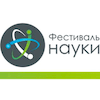
6. Peter the Great St.Petersburg Polytechnic University

7. Tomsk Polytechnic University

8. Ural Federal University

9. South Ural State University

10. National Research University Higher School of Economics

11. Moscow Aviation Institute


12. Novosibirsk State University

13. ITMO University

14. N.R.U. Moscow Power Engineering Institute

15. National Research Nuclear University MEPI

16. Kazan Federal University

17. National University of Science and Technology "MISIS"

18. Moscow Institute of Physics and Technology

19. Samara National Research University

20. Moscow State Technological University "Stankin"

21. Novosibirsk State Technical University

22. RUDN University

23. Southern Federal University

24. Saratov State University

25. Ufa State Petroleum Technological University

26. Samara State Technical University

27. Siberian Federal University

28. Kazan National Research Technical University named after A.N. Tupolev - KAI
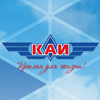
29. Perm State Technical University
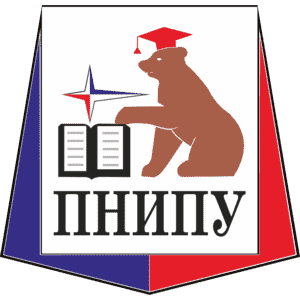
30. Omsk State Technical University
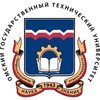
31. Saint Petersburg State Electrotechnical University

32. Moscow Polytech

33. Saint-Petersburg Mining University

34. Magnitogorsk State Technical University
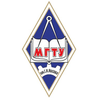
35. Saratov State Technical University

36. Moscow State University of Railway Engineering

37. Lobachevsky State University of Nizhni Novgorod

38. Nizhny Novgorod State Technical University

39. Tula State University
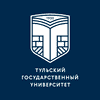
40. Belgorod State Technological University
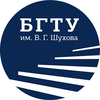
41. Far Eastern Federal University

42. Novgorod State University
43. belgorod state university.

44. Finance Academy under the Government of the Russian Federation

45. Moscow Medical Academy

46. Kazan State Technological University

47. Russian State University of Oil and Gas
48. siberian state aerospace university.
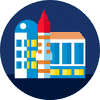
49. Tambov State Technical University
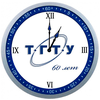
50. Voronezh State University

51. Siberian State Industrial University
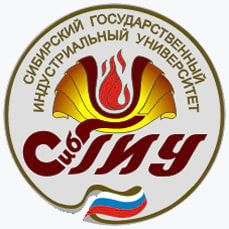
52. Saint Petersburg State Institute of Technology
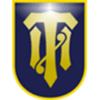
53. Kalashnikov Izhevsk State Technical University
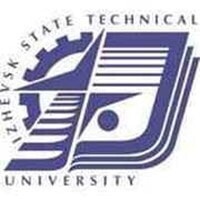
54. St. Petersburg State University of Architecture and Civil Engineering
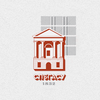
55. Mendeleev University of Chemical Technology of Russia

56. Murmansk State Technical University
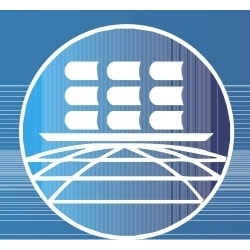
57. South-Western State University
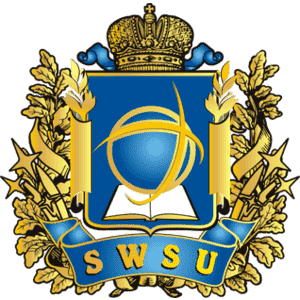
58. Ogarev Mordovia State University

59. Tomsk State University of Control Systems and Radioelectronics
60. south-russian state university of economics and service.
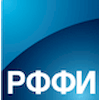
61. Perm State University

62. Kuzbass State Technical University
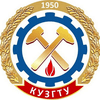
63. Russian National Research Medical University

64. Plekhanov Russian University of Economics

65. Ulyanovsk State Technical University
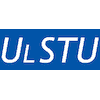
66. Ulyanovsk State University
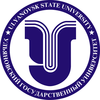
67. Penza State University
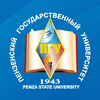
68. Kuban State University of Technology
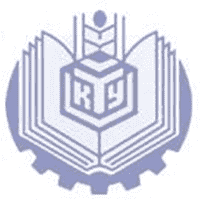
69. Polzunov Altai State Technical University
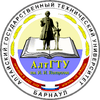
70. Chelyabinsk State University
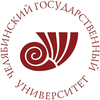
71. Yaroslavl State University
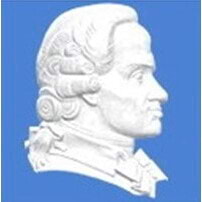
72. University of Tyumen

73. National Research University of Electronic Technology

74. Leningrad State University

75. Moscow State Pedagogical University

76. Udmurt State University
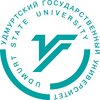
77. Irkutsk State University

78. North-Eastern Federal University

79. Bashkir State University

80. Russian Presidential Academy of National Economy and Public Administration

81. Kuban State University

82. Kuban State Agricultural University
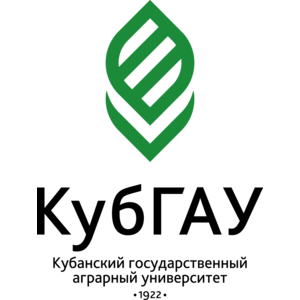
83. St. Petersburg State University of Aerospace Instrumentation
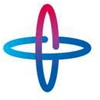
84. Kemerovo State University

85. Immanuel Kant Baltic Federal University

86. Orenburg State University

87. Baltic State Technical University "Voenmeh"
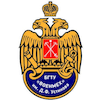
88. Tomsk State University of Architecture and Building
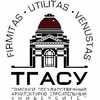
89. Chuvash State University
90. ivanovo state power university.
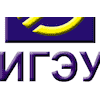
91. Irkutsk National Research Technical University
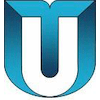
92. Orel State University

93. State University of Management

94. Tomsk State Pedagogical University
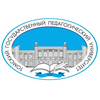
95. Volgograd State University
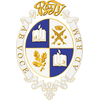
96. Petrozavodsk State University

97. Tver State University
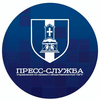
98. Northern Arctic Federal University

99. Omsk State Transport University
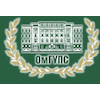
100. Kaliningrad State Technical University
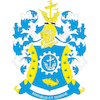
The best cities to study Mechanical Engineering in Russia based on the number of universities and their ranks are Moscow , Tomsk , Saint Petersburg , and Ufa .
Engineering subfields in Russia
- Accessibility Options:
- Skip to Content
- Skip to Search
- Skip to footer
- Office of Disability Services
- Request Assistance
- 305-284-2374
- High Contrast
- School of Architecture
- College of Arts and Sciences
- Miami Herbert Business School
- School of Communication
- School of Education and Human Development
College of Engineering
- School of Law
- Rosenstiel School of Marine, Atmospheric, and Earth Science
- Miller School of Medicine
- Frost School of Music
- School of Nursing and Health Studies
- The Graduate School
- Division of Continuing and International Education
- People Search
- Class Search
- IT Help and Support
- Privacy Statement
- Student Life
- University of Miami
- Division of University Communications
- Office of Media Relations
- Miller School of Medicine Communications
- Hurricane Sports
- UM Media Experts
- Emergency Preparedness
- Civil, Architectural and Environmental
- Electrical and Computer
- Mechanical and Aerospace
Departments
- Alumni & Giving
- Latest Headlines
- Subscribe to News@TheU Newsletter
- UM NEWS HOME
Engineering students’ imagination and ingenuity shine at the Senior Design Expo
By Lorena Taboas 05-02-2024
Onlookers marveled at the demonstration of an experimental airfoil designed by mechanical engineering students to reinvent the traditional airplane wing. A few tables away a group of seniors partnered with Florida Power and Light to create a one-bolt bracket system to keep streetlights more secure during strong storms. Across the Shalala Student Center, seniors preparing to graduate presented their senior design projects which represent months of experimentation aimed at solving real-world challenges.
Working with the Miami-based aviation company GlobalX, a group of students focused on streamlining the process of conformity inspections, which are critical to ensuring aircraft meet all safety and regulatory standards before flights. By identifying and eliminating inefficiencies in the inspection process, the students projected a potential annual saving of $3.7 million for GlobalX, while also reducing aircraft downtime.
Other standout projects, like Nalox Near-U, came from the biomedical engineering department to create an UberEATS-style app to help prevent overdose deaths. The app facilitates the rapid delivery of naloxone, a medication used to reverse opioid overdoses, to users in critical need, potentially saving lives through timely intervention. A multidisciplinary project included the design of a new South Dade Transit Operations Center responsible for charging, maintaining, and operating a fleet of electric buses serving a new transit line between Dadeland and Homestead.
Reflecting on the project, graduating senior Christopher Papas said the most rewarding part of the experience was that “we’re all engineers in different disciplines. We had a civil engineer, environmental engineer, mechanical engineer, and structural engineer come together to create a strong, cohesive project that we’re all collectively proud of.”
The expo also allowed students to interact with industry professionals who provided valuable feedback and insights as they launched their careers. Many of these were alumni returning to support and guide the new generation of engineers.
Watch a recap of the 2024 Senior Design Expo:
2024 Senior Design Expo Winners
- Biomedical Engineering: Nalox – NearU; Tyler Benjamin, Liv Nikolich, Sylvia Ortiz
- Civil and Architectural Engineering: ACE Engineering: South Dade Transit Operations Center; Christopher Papa, Anthony Carfora, Andres Solorio, Bita Abadian, Seba Alawadhi
- Chemical, Environmental, and Materials Engineering: Civilutions Consultants: University of Miami Stormwater Management & Design of New Engineering Building; Will Kalis, Mathew Birtman, Daniela Sanguily, Nicolas Esquivel
- Electrical and Computer Engineering: H.A.R. Housing and Roommate Searching Made Easy; Jose Luis Abrams, Juliano Plata, Yasin Erkilic
- Industrial and Systems Engineering: GlobalX Airworthy Compliance; Vittoria Marinoni, Dilara Erkilic, Lucas Bernabeu
- Mechanical and Aerospace Engineering: Hybrid Flow Air Foil; Ruben Escobar, John Baringer, Joshua Prabahar, Neyton Baltodano
- Best Expo Display: Hybrid Flow Air Foil
- Best Expo Poster: Caremax Medical Transportation Optimization
- Best Expo Video: Muscle Memory: sEMG Wearable
- People's Choice Award: 1st place: FPL One Bolt Bracket; 2nd place: Stormwater Management System & UM CoE Campus Expansion; 3rd place (tied): ABG Now and GlobalX Airworthy Compliance
- Industry Impact: FPL One Bolt Bracket
- Best Senior Design Project: Hybrid Flow Air Foil
Learn About Us
Undergraduate, ms, and phd, get started.

- 1251 Memorial Drive McArthur Engineering Building Coral Gables , FL 33146
- 305- 284-4117 305- 284-4117
- UM News and Events
- Alumni & Friends
- 'Cane Watch
Tools and Resources
- Academic Calendar
- Department Search
- Parking & Transportation
- social-facebook
- social-twitter
- social-youtube
- social-instagram
Copyright: 2024 University of Miami. All Rights Reserved. Emergency Information Privacy Statement & Legal Notices Title IX & Gender Equity Website Feedback
Individuals with disabilities who experience any technology-based barriers accessing the University’s websites or services can visit the Office of Workplace Equity and Inclusion .
What are your chances of acceptance?
Calculate for all schools, your chance of acceptance.
Your chancing factors
Extracurriculars.
College Essay Tips for Software Engineering Programs
This article was written based on the information and opinions presented by Hale Jaeger in a CollegeVine livestream. You can watch the full livestream for more info.
What’s Covered:
“why this . . .” essays for software engineering, writing your essay.
For many college applications, you’ll write essays in addition to the Common App personal statement . These prompts will often ask you about what you’re planning on pursuing at the college. This article will give you practical advice for explaining your interest in software engineering.
Many supplemental essay prompts are quite common, such as “ Why this major? ” and “ Why this school? ” If you’re sure about pursuing software engineering and know which college you want to kick off your career at, you should already know the answers to these questions.
Certain schools have strong software engineering and computer science programs. If this is the case for your chosen college, it should be easy for you to say that you can identify with their program. You can add that you’re excited to use the specific resources there and how they will help you reach your goal of becoming a software engineer.
When talking about your major, bring up what attracts you to the field. Your eventual salary and career prospects are incentives, but you want to explain what specifically about the study of computer science and engineering makes you excited. Why do you like to learn about it? Maybe you’re fascinated by the inner workings of technology. Perhaps you’re interested in how specific tools on certain websites work. It’s also possible that you want to improve user experience and innovate existing software.
These reasons are a bit less shallow than money. They also get to the heart of why you want to pursue software engineering: you like to build things and solve problems.
From Abstract to Specific
In general, when writing your essays, you should work on funneling these types of ideas about your major from the abstract to the specific. You can open with a particular anecdote or story to catch the reader’s attention, of course, but try to start with high-level interests. Fundamental things like identifying the inner workings of a website can lead to more niche topics.
Personal Experiences
When writing your essays, make sure you touch on any personal experiences that can help show why this subject is your passion. It can all add to the personal narrative that you’ve been building in your entire application and help make the admissions officers understand you better.
If you had an experience with technology that fascinated you, drew you into the subject, and made you want to learn more, then include that. Be sure to add the important details so the reader can get a good sense of the scene. Another way to go is if you had the opposite experience: you encountered a frustrating piece of technology and were desperate to figure out how to get it working. You realized that you wanted to go into the field to improve software and make people’s lives easier. You can try writing about your interests that way.
Another way to write your essay is to back up an explanation of your passions with a personal story that will make your essay compelling. Try to draw on an anecdote, and if possible, explain what you’ve accomplished after your initial interest was sparked.
How did you get involved in coding? If you found technology that was glitching all the time or something that excited you, did this inspire you to figure out how it all worked? Write about how you’ve developed your skills in coding and science and how much you’ve learned about good systems and malfunctioning systems. Then, write about what you want to accomplish and innovate in the field.
Plans for the Future
When you’ve discussed the past and present, you can begin to probe the future. For the sake of narrative, try to include how you’ve grown and what your ultimate ambitions are. If you’re not sure exactly what branch of software engineering you want to go into, that’s fine. You can name a few options, such as game design or mobile design, or you can just talk about how you want to build things and make better technology to improve people’s lives.
When you’re talking about personal things, you should aim to be specific. Draw on stories when you can, and be honest about what interests you about this subject and what you want to do in the field. This is your chance to explore why you’re looking to go into software engineering, so you should come away from these essays feeling much more confident about your planned course of study.
Related CollegeVine Blog Posts

Share Options
- Share to Facebook
- Share to Linkedin
UVA Engineering Shines With Top University Awards
UVA Honors Faculty, Grad Students for Excellence in Teaching and Public Service
The University of Virginia on Tuesday honored 19 faculty members and five graduate students with awards recognizing their creative instruction and meaningful contributions to the University, and for public service.
The University Teaching Awards are among the highest honors given to faculty members who have distinguished themselves both in the classroom and in their fields.
“The University is incredibly fortunate to have faculty members and graduate students who are devoted to fulfilling our teaching, research and public service missions and to making a difference in the lives of students, community members and all who benefit from their work,” said Ian Baucom, UVA executive vice president and provost. “I am honored to call them my colleagues and grateful for the many ways they contribute to the UVA community.”
Here are the winners of the 2024 University Teaching Awards:
Alumni Association Distinguished Professor Award
- Brian Helmke , associate professor of biomedical engineering, School of Engineering and Applied Science
Alumni Board of Trustees Teaching Award
- Evangelia Gazaki, assistant professor of mathematics, College of Arts & Sciences
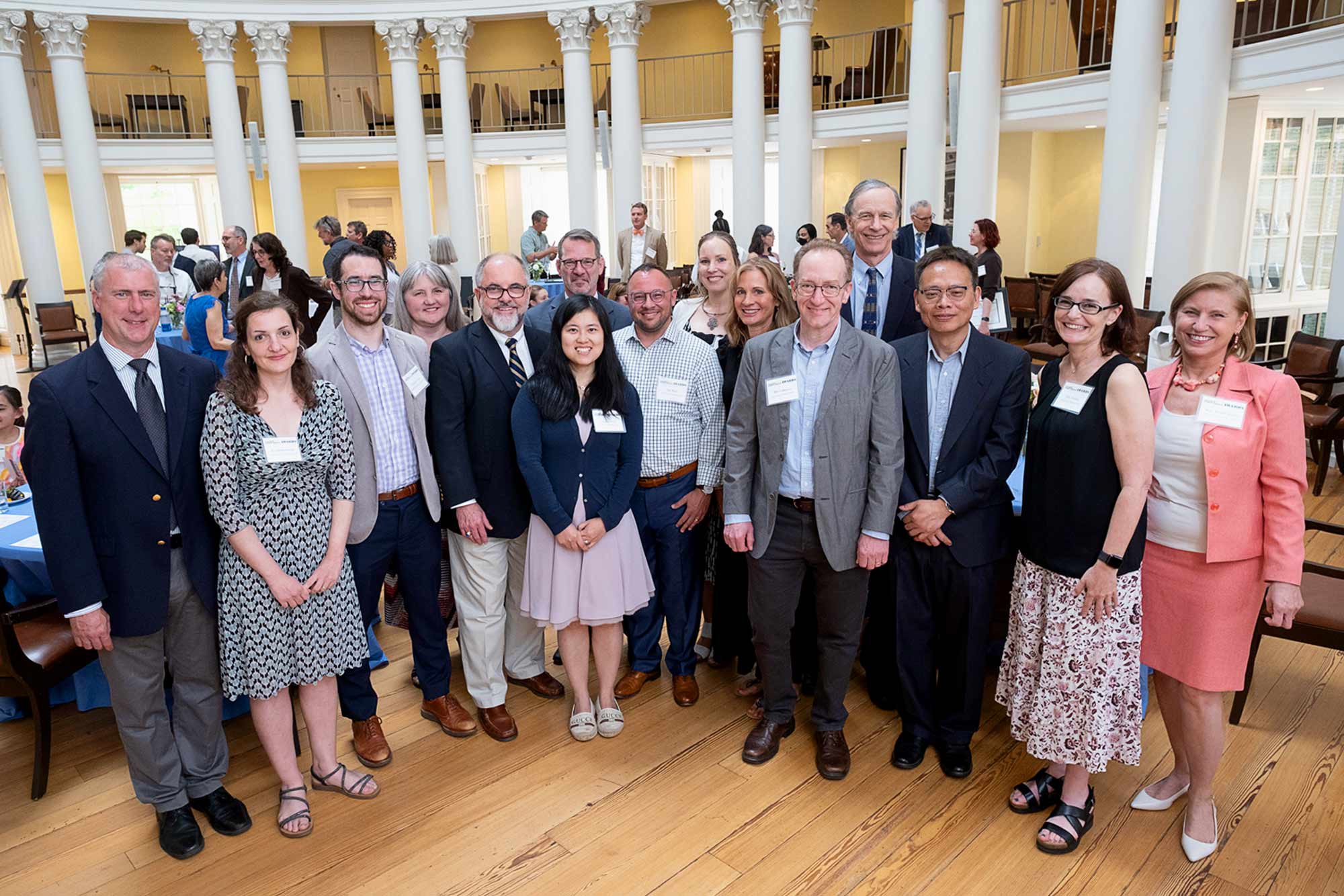
All-University Teaching Awards
- William Brady, professor of emergency medicine and cardiovascular medicine, School of Medicine
- Michael Gallmeyer, professor of commerce, McIntire School of Commerce
- David Kittlesen, associate professor of biology, College of Arts & Sciences
- Judy Paulick, assistant professor of education, School of Education and Human Development
- Beth Quatrara, assistant professor of nursing, School of Nursing
- Cole Rizki, assistant professor of Latin American studies, College of Arts & Sciences
- Natasha Smith , professor of mechanical and aerospace engineering, School of Engineering and Applied Science
- Sylvia Tidey, associate professor of anthropology and global studies, College of Arts & Sciences
- Xin Cynthia Tong, associate professor of psychology, College of Arts & Sciences
- Gerald Warburg, professor of practice in public policy, Frank Batten School of Leadership and Public Policy
- Martin Wu, professor of biology, College of Arts & Sciences
Mullholland Resident Teaching Award
- Nicholas Ashur, School of Medicine
Here are the winners of the 2024 Graduate Student Teaching Awards:
Arts and Humanities
- John Modica, English
Social Sciences
- Shelly Tsang, psychology
STEM Disciplines
- Zackary Landsman , systems and information engineering
Frank Finger Graduate Fellowship for Teaching
- Sarah McPeek, biology
Class of 1985 Fellowship for Creative Teaching
- Bernardo de Magalhães e Menezes, landscape architecture
The University also recognizes faculty members for outstanding community-engaged scholarship undertaken with students. Here are the winners of the 2024 Public Service Awards:
Excellence in Public Service
- Cale Jaffe, professor of law, School of Law
- Garrick Louis , associate professor of systems and information engineering, School of Engineering and Applied Science
Collaborative Excellence in Public Service
- Natoya Hill Haskins, associate professor of education, School of Education and Human Development
- Michael Lyons, associate professor of education, School of Education and Human Development
- Julia Taylor, associate professor of education, School of Education and Human Development
This story originally appeared in UVA Today.
Questions? Comments?
Office of communications.
The Office of Communications is charged with keeping all stakeholders well informed about the School's mission, vision, activities, progress and achievements. Web Issue? SUBMIT A REQUEST
College of Engineering
Research Open House 2024
The 2024 Research Open House was held on April 25, 2024. Recognition categories are as follows:
- One Graduate Student Poster Award in each of the six departments
- One Undergraduate Student Poster Award in each of the six departments
- 1st, 2nd, and 3rd Place People's Choice Awards
Departmental Awards
Biomedical engineering.
Graduate students (three-way tie):
- Daniel Meggo , Strategies for lung-protective ventilation learned from alveolar recruitment dynamics
- Erattakulangara Subin , Towards quantitative characterization of airway collapse in obstructive sleep apnea
- Mihiret Redi , Building diverse pathophysiology into patient-ventilator computational modeling: Predicting performance in any scenario
Undergraduate student : Jatin Dhamrait Association of airway geometry with chronic obstructive pulmonary disease
Chemical and Biochemical Engineering
Graduate student: Luis Jessen Enhancing mechanical properties and lowering polymerization shrinkage in densely crosslinked photopolymer networks using small-molecular weight hyperbranched oligomer additives
Undergraduate student: Josiah Power Thermal susceptibility of polymicrobial biofilms of staphylococcus aureus and pseudomonas aeruginosa
Civil and Environmental Engineering
Graduate student: Bryanna Popejoy Effect of metals on goethite and ferrihydrite redox potentials
Undergraduate student: Anthony Lamoreux Monitoring the Manning’s n coefficient variation over the yearly cycle
Electrical and Computer Engineering
Graduate student: Kaleb McClenathan Quantum design simulations for high performance thermophotovoltaic cells - An iterated local search algorithm approach
Undergraduate student: Robert Schwan Soft tissue ablation via mid-infrared lasers for surgical applications
Industrial and Systems Engineering
Graduate student: Arnold Bangel III Recycled paper feedstock for composite-based additive manufacturing
Undergraduate student: No entries.
Mechanical Engineering
Graduate student: Jake Herrin Atomistics-consistent continuum models and pore-collapse generated hotspot temperatures in energetic crystals II: 1,3,5-Trinitro-1,3,5-triazinane (RDX)
Undergraduate student: Anika Gokhale A comparative analysis of waste cooking oil biodiesel and diesel emissions
People's Choice Awards
First place.
Winter Philibert : Utilizing differential dynamic microscopy for mucus rheology and metachronal wave scale measurement in airway cultures
Second place
Ashley Rhodes : Novel drug delivery system to streamline the treatment of non-muscle invasive bladder cancer
Third place
Joshua Carrizales : Deep learning artifact correction in 4DCT scans
Photo Gallery
- The Vice Chancellor and Dean
- Facts and Figures
- Our Departments
- Zachry Engineering Education Complex
- Advising and Support
- Degree Programs
- Engineering Academies
- Online Degrees by Department
- Online Courses
- Engineering Global Programs
- Admissions and Aid
- Undergraduate Admissions
- Graduate Admissions
- Transfer Students
- Entry to a Major
- Explore Engineering Career Paths
- Visit With Us
- Student Life
- Find Your Community
- Get Creative
- Interact with Industry
- Solve Problems
- SuSu and Mark A. Fischer '72 Engineering Design Center
- Meloy Engineering Innovation and Entrepreneurship Program
- Undergraduate Research
- Autonomy and Robotics
- Education and Training Research
- Energy Systems and Services Research
- Health Care Research
- Infrastructure Research
- Materials and Manufacturing Research
- National Security and Safety Research
- Space Engineering
- Partner With Us
- PK-12 and Educators
- Researchers
- Reach Our Divisions
Four Texas A&M Former Students Honored by The College of Engineering
May 2, 2024 By David Holt
- Campus Community
- Former Students

The Texas A&M University College of Engineering honored four former students during the 2024 Outstanding Alumni Awards Banquet, held on April 18. The Outstanding Alumni Honor Awards and the Outstanding Young Alumni Honor Awards are the highest honors given by the college, recognizing both the personal and professional accomplishments of the awardees. The recipient of the Outstanding Young Alumni Honor Award was Keith Hearon ’14. The Outstanding Alumni Honor Award recipients were Bob Jordan ’85, Stephen H. Lucy, ’82 and Brad Worsham ’88.
Outstanding Young Alumni Honor Award
Keith Hearon ’14 Biomedical Engineering CEO, Nuceptive Labs Keith’s journey is marked by remarkable accomplishments, beginning with his work as a postdoctoral researcher at the MIT Langer Lab. He co-founded and led two startups: Poly6, a pioneer in aerospace 3D printing and Virex Health, an electrochemical rapid diagnostics company. Both achieved notable success, with acquisitions in 2019 and 2022, respectively.
A proud graduate of Texas A&M, Keith earned his Ph.D. in Biomedical Engineering in 2014. His scholarly contributions are profound, boasting more than 40 patents and publications in materials science and biotechnology. Notably, he was recognized as a top finalist in the 2014 Collegiate Inventors Competition and honored as a regional finalist in the prestigious 2020 White House Fellowship.
Currently, Keith serves as the chief executive officer of Nuceptive Labs, a male contraception company, and the executive chairman of the board of Imidex, an AI lung cancer diagnostics firm. His leadership extends beyond the corporate realm and into higher education, as he actively contributes to the board of the college of engineering at Georgia Tech.
In addition to his professional endeavors, Keith finds fulfillment in his personal life with his wife Caitlin, a 2011 Texas A&M chemical engineering graduate. Together, they are proud parents to two sons, Michael and Gabriel, with another child expected in July 2024.
Outstanding Alumni Honor Awards
Bob Jordan ’85 Computer Science President & Chief Executive Officer, Southwest Airlines Co. Bob Jordan serves as president and chief executive officer at Southwest Airlines. Contributing over three decades to Southwest, Bob has been instrumental in transforming the airline into a beloved national brand, overseeing its growth from a regional presence to a powerhouse in the airline industry.
During his tenure, Bob has spearheaded numerous initiatives, including the development of the Southwest.com e-commerce platform, the revamp of the Rapid Rewards® loyalty program and the successful integration of AirTran Airways. His leadership was particularly crucial during the 2020 pandemic, where he led efforts to avoid layoffs and maintain Southwest's record of never having a single layoff in its 52-year history.
Beyond his corporate responsibilities, Bob is an advocate of "The Southwest Way," embodying the company's core values and people-centric culture. He serves on the board of directors for Shiftkey, the board of trustees for the Southwest Medical Foundation and the board of The Association of Former Students.
A distinguished former student of Texas A&M, Bob holds bachelor’s and master’s degrees in computer science and business administration, respectively. He is actively involved in charitable organizations, including Cross Timbers Community Church, Compassion International and the Metropolitan Opera. Bob and his wife Kelly ’86, are proud members of the A&M Legacy Society and have two adult children, Sheryl ’09 and Soren ’10, along with two grandsons, Joseph and Jacob.
Stephen H. Lucy, ’82 Civil Engineering Executive Principal at JQ Engineering, now IMEG Stephen H. Lucy, PE, serves as executive principal and senior client executive for JQ Engineering, now IMEG, a national engineering consultant firm with a strong presence in Texas. With experience spanning over four decades, Steve has played pivotal roles in shaping the engineering landscape across the Lone Star State.
Steve's professional career began as a structural engineer at Datum Engineering in Dallas in 1983, where he eventually became an associate partner. His international experience includes serving as engineering manager in London, UK for a joint venture between Datum and Robert West & Partners. In 1994, Steve joined JQ Engineering and played a key role in establishing multiple offices across Texas before ultimately becoming chief executive officer in 2015. Under his leadership, JQ Engineering merged with IMEG in 2024, further enhancing its position in the Texas market.
Throughout his career, Steve has garnered numerous honors, including recognition as a distinguished graduate by the Zachry department of civil and environmental engineering. Additionally, he is an honorary member of the American Institute of Architects Dallas Chapter and the Texas Society of Architects. Steve's expertise is evident in his contributions to technical and business practices, as evidenced by his presentations and co-authored papers at state and national conferences.
A proud Aggie, Steve earned both his bachelor’s and master’s in civil engineering from Texas A&M. His impact on campus extends beyond academia, with his firms serving as engineering consultants for over 60 projects, including the redevelopment of the Zachry Engineering Education Complex and Memorial Student Center.
Outside of his professional career, Steve finds joy in his family life with his wife Lisa, and their daughter, Kaitlyn. His commitment to excellence continues to inspire and shape the future of structural engineering in Texas and beyond.
Brad Worhsam ’88 Aerospace Engineering Retired Brad Worsham, a proud Aggie from the class of 1988, embarked on a journey that spans decades of service to the U.S. intelligence community. His career began while pursuing his undergraduate at Texas A&M, where he served as a cooperative education student at the CIA, laying the groundwork for his path in intelligence.
After graduation, Brad's assignments took him around the globe, from the U.S. embassy in Islamabad, Pakistan, to supporting defense facilities in Australia. In 1997, he co-founded BIT Systems, an aerospace and defense contracting company, which he later sold in 2014.
Even in retirement, Brad's passion for aviation persisted, earning him numerous certifications as a pilot. His return to academia in 2019 as a professor of practice in the department of aerospace engineering at Texas A&M fulfilled a lifelong dream, inspired by his mentors and the generosity of his own scholarship donors.
Brad's commitment to education and mentorship is evident in his contributions to Texas A&M, including the establishment of endowed scholarships and recognition as an outstanding teacher by aerospace engineering students.
Outside of the academic realm, Brad remains active in the entrepreneurial community, serving as chairman of the board for various organizations. Alongside his wife Liz, he continues to make meaningful contributions to philanthropic causes, while their daughters Hailey ’18 and Alyssa pursue their passions in mechanical engineering and environmental planning, respectively.
- Facebook Facebook
- Twitter Twitter
- LinkedIn LinkedIn
- Email Email
- Print Print
Cookie Acknowledgement
This website uses cookies to collect information to improve your browsing experience. Please review our Privacy Statement for more information.

- College of Engineering
- News Center
Graduate School honors 28 students from Auburn Engineering
Published: Apr 30, 2024 9:45 AM
By Kat Bader
More than 20 engineering graduate students were recognized at the annual Auburn University Graduate School awards ceremony, Friday, April 26, in the Melton Student Center Ballroom.
Auburn Engineering’s graduate program , which has an enrollment of more than 1,100 students, was recently ranked No. 19 in the 2024 U.S. News and World Report’s Best Online Master’s in Engineering programs , marking four consecutive years in the top 20 and eight years in the top 25.
“Our students' dedication and commitment to excellence shine through as they contribute significantly to campus life through research and involvement in student organizations. Our graduate students also have a rich legacy of influencing both industry and academia beyond Auburn,” said Maria Auad , associate dean for graduate studies and faculty development. “It comes as no surprise that our program's graduate students rank among the finest at the university and are undoubtedly among the nation's elite."
Auburn Engineering graduate students/faculty recognized were:
- P. Anthony Matthews, civil and environmental engineering (Merriwether Fellowship)
- Muztahid Muhammed, mechanical engineering (Merriwether Fellowship)
- Suman Budhathoki, biosystems engineering (Master’s Thesis Award)
- Olamide Durodola, biosystems engineering (Master’s Thesis Award)
- Hemendra Kumar, biosystems engineering (Distinguished Dissertation Award)
- Aleksandr Dolgavin, computer science and software engineering (Outstanding Master’s Student)
- Preetika Kauer, biosystems engineering (Outstanding Master’s Student)
- Tanner Koza, mechanical engineering (Outstanding Master’s Student)
- Muhammad Shahan Qamar, aerospace engineering (Outstanding Master’s Student)
- Nabeel Ahmad, mechanical engineering (Outstanding Doctoral Student)
- Tianshi Che, computer science and software engineering (Outstanding Doctoral Student)
- Md Mahmud Hossain, civil and environmental engineering (Outstanding Doctoral Student)
- Vladislav Korostelev, materials engineering (Outstanding Doctoral Student)
- Kritika Malhotra, biosystems engineering (Outstanding Doctoral Student)
- Souvika Sarkar, computer science and software engineering (Outstanding Doctoral Student)
- Mengwei Xuan, civil and environmental engineering (Outstanding Doctoral Student)
- Matthew T. Garnett, chemical engineering (Frank Sturm Memorial Fellowship)
- Symone Alexander , assistant professor in chemical engineering (Outstanding Graduate Mentor Award)
- J. Brian Anderson , professor (geotechnical) in civil and environmental engineering (Outstanding Graduate Mentor Award)
- Soundarya Korlapati, computer science and software engineering (Outstanding Service to Auburn Research Award)
- Esther Akinrinde, industrial and systems engineering (Outstanding Graduate Student Council Senators)
- Olumide Falana, biosystems engineering (Outstanding Graduate Student Council Senators)
- Onyedika Mbelu, mechanical engineering (Outstanding Graduate Student Council Senators)
- Will McAtee, aerospace engineering (Outstanding Graduate Student Council Senators)
- E. Steven Porterfield, materials engineering (Outstanding Graduate Student Council Senators)
- Rehman Qureshi, aerospace engineering (Outstanding Graduate Student Council Senators)
- Mrinmoy Saha, mechanical engineering (Outstanding Graduate Student Council Senators)
- Harrish Kumar Senthil Kumar, chemical engineering (Outstanding Graduate Student Council Senators)
Diversity within Auburn’s 10 engineering fields of study — aerospace, biosystems, chemical, civil and environmental, computer science and software, electrical and computer , industrial and systems, materials, mechanical and wireless — provide graduate students with a host of master’s and doctorate programs.
Prospective graduate students can learn more about Auburn Engineering, and they can apply and schedule a visit here .
Pictured is the Shelby Center for Engineering Technology on Auburn's campus.
Featured Faculty
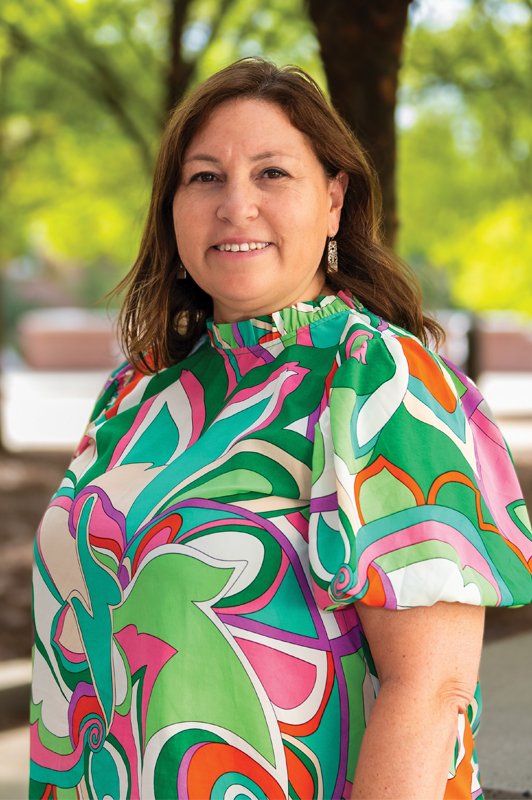
Chemical Engineering
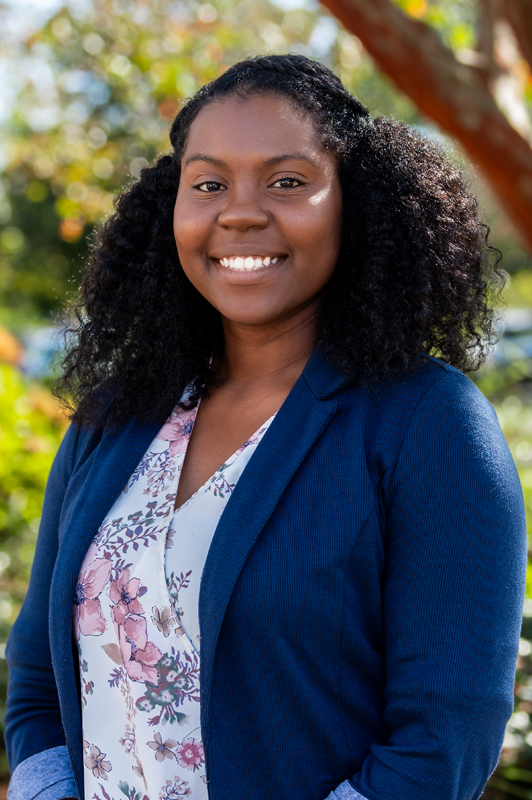
Civil and Environmental Engineering
Recent Headlines
University of South Florida
Main Navigation

[Photos by Ryan Wakefield, USF College of Engineering]
USF and TECO celebrate decades of collaboration and innovation
- April 30, 2024
Community Partnerships
By Tina Meketa , University Communications and Marketing
USF’s ongoing efforts to develop clean-energy solutions and strengthen the environmental engineering workforce are helping build upon the university’s longstanding partnership with Tampa Electric (TECO) – a partnership first established in 1974.
During an event at the USF Research Park, the two institutions announced USF’s Clean Energy Research Center will be named for TECO. The TECO Clean Energy Research Center leads a number of groundbreaking renewable energy projects, such as the creation of solar energy applications for electrical power – all in an effort to increase the use of clean energy and improve the environment.

USF President Rhea Law and Tampa Electric President and CEO Archie Collins
“USF and Tampa Electric are solving significant challenges, improving lives, and building a resilient, healthy environment for future generations,” USF President Rhea Law said. “This is a great example of why I place such a high priority on partnerships: We are better together.”
“Tampa Electric knows the value that the USF family of educators and students brings to the field of power generation,” said Archie Collins, president and chief executive officer of Tampa Electric. “The Clean Energy Research Center is a tremendous opportunity for TECO and USF to strengthen our relationship through collaboration on the future of energy generation. There is certainly no shortage of challenges in this field – the synergies between our teams will shape and accelerate our drive for a cleaner future that is both reliable and affordable.”
Center director Yogi Goswami, distinguished university professor of chemical, biological and materials engineering, holds nearly 40 patents and has licensed several inventions, such as hydrogen energy storage and technology to disinfect indoor air. The TECO Clean Energy Research Center also offers a variety of engineering courses, including the design of solar power plants. During the event, Goswami provided a tour to TECO and USF leadership, demonstrating the significance of his team’s research.
Yogi Goswami provides tour
Tour of the TECO Clean Energy Research Center
Student in TECO lab
“The strong legacy of this partnership, of its commitment to clean-energy solutions and a healthier environment, is among the reasons that USF attracts high-caliber students from around the country and the world,” Goswami said. “Together with Tampa Electric, we are providing them with the tools to become problem-solvers and energy leaders. It also helps us attract world-class faculty, because that support creates greater opportunities to find solutions to the many environmental issues we are facing here at home, across the nation and globally.”
Over the last 50 years, Tampa Electric has supported many initiatives and projects across USF, benefitting the Muma College of Business, the College of Education, USF Health, Athletics, the College of Engineering and more. Some of TECO and USF’s research collaborations include studies on electric vehicles with the Center for Urban Transportation Research and addressing corrosion and remediation of utility infrastructure with the Department of Integrative Biology.
TECO has also provided students hands-on experience through internships, talent development programming and thought leadership, and has participated in several USF projects.
More than 300 TECO employees are USF alumni, including former CEOs Gordon Gillette and John Ramil, who served on the USF Board of Trustees for more than 20 years.
Return to article listing
College of Engineering , TECO , Tina Meketa
News Archive
Learn more about USF's journey to Preeminence by viewing Newsroom articles from past years.
USF in the News
Tampa bay business journal: usf ranked in the top 50 for patents worldwide.
April 29, 2024
New York Times: Is Nasal Spray Addictive?
April 23, 2024
NPR: A giant patch of seaweed is heading towards Florida's beaches
April 21, 2024
Tampa Bay Times: Here’s how USF is rising as a major research institution
April 18, 2024
More USF in the News

IMAGES
VIDEO
COMMENTS
The Massachusetts Institute of Technology Graduate School offers advice for writing an in-depth personal statement for engineering schools using the "qualified match" approach. The steps include: Make a statement that fits the essay prompt, like "I am a dedicated and hard-working student.". Quantify your statement with specific details ...
There are three essay portions to the application: "Statement of Purpose," "Outstanding Achievements" and "Additional Information.". Although "Outstanding Achievements" and "Additional Information" are optional, it is highly recommended that you complete these essays. This application uses plain text formatting.
Structuring an Engineering Statement of Purpose. Your SOP will ideally include the following: An introductory paragraph that grabs the reader's attention and sets the stage for the paragraphs to follow. A few highlights of your abilities, education, and work accomplishments. Reasons for any gaps in your chronological work history or lower ...
It's one of the strongest engineering programs in the country. This question Cornell is asking is a mix of why have you chosen the college of engineering and why have you chosen your major. You want to think about not only those academic goals you have and your background, but also delve into your career interests as well.
Engineering Schools Admission Essays: Summary. Selecting the right topic for your engineering school admission essays is a critical step in highlighting your passion and aptitude for the field. When choosing a topic, consider its relevance to current engineering challenges, your personal experiences, and the potential for innovation.
Prompt: If you are applying to the Pratt School of Engineering as a first-year applicant, please discuss why you want to study engineering and why you would like to study at Duke (250 words). One Christmas morning, when I was nine, I opened a snap circuit set from my grandmother. Although I had always loved math and science, I didn't realize my passion for engineering until I spent the rest ...
If you are applying to the Pratt School of Engineering as a first year applicant, please discuss why you want to study engineering and why you would like to study at Duke. (250 words). As opposed to a 100 word essay, 250 words gives you a little more space to write about your interests.
Grad School. Resources. Sample Essays. The Engineering Student. A simple bridge truss was the first structure I ever analyzed. The simple combination of beams that could hold cars, trains, and trucks over long spans of water fascinated me. Having the tools to analyze the loads on the truss further increased my interest in structures.
At the very minimum, you'll want to have taken algebra 1 and 2, geometry, and pre-calculus. You should get As in at least most of those classes, and nothing lower than a B. You absolutely want at least four years of math classes (you can get more by taking multiple math classes in one year.)
We will also be open virtually on Wednesdays from 8:00am-4:30pm. Cornell University. 410 Thurston Avenue. Ithaca, NY 14850. In the online Common Application Writing Supplement, please respond to both the Cornell University essay question and the essay prompt that corresponds to the undergraduate college or school to which you are applying.
Your engineering personal statement reflects who you are, and each candidate may structure theirs differently. Though the process is personal and unique to everyone, these are some steps you can take to create an effective engineering personal statement: 1. Creatively introduce who you are. The first paragraph of your personal statement is your ...
College of Engineering: All applicants are required to write two supplemental essays. Each has a limit of 250 words. Essay 1 is required of all applicants. For Essay 2, you must choose between Question A and Question B. ... Instead of writing one long essay, College of Engineering applicants have to write two shorter essays, and they get to ...
An essay on engineering allows us to delve into the diverse branches of engineering, such as civil, mechanical, electrical, and biomedical, highlighting their unique contributions to society. It enables us to explore the fascinating history of engineering, from ancient marvels to modern advancements, showcasing humanity's quest for progress and ...
John A Paulson School of 2019-20 Engineering and Applied Sciences. 1 . This thesis guide has been put together to help guide students who ... Strategies for Essay Writing: These concise explanations provide advice on some fundamental elements of academic writing. Bok Writing Fellows (BWFs): Bok Writing Fellows provide discipline-specific ...
5. Connect engineering to your long-term goals: Explain how studying engineering at Cornell will help you achieve your career and personal goals. This can include your plans for making a positive impact in the world or how your engineering interests and ambitions might contribute to a specific industry or community. 6.
This college essay tip is by Abigail McFee, Admissions Counselor for Tufts University and Tufts '17 graduate. 2. Write like a journalist. "Don't bury the lede!" The first few sentences must capture the reader's attention, provide a gist of the story, and give a sense of where the essay is heading.
In this essay, which she wrote back in 2016 as a student intern, she discussed the origins of her interest in engineering and aimed to inspire other young women to pursue this profession as a way to bring a different perspective to a vocation dominated by men. 3. Taking Lessons From What Went Wrong by William J. Broad.
Why This Major Essay Example. Lastly, let's see how one engineering student answered both Purdue and Princeton's why this major essay/why this major essay engineering prompts. You'll notice that the student recycled various information, but condensed and adapted the essay the second time around. Why This Major Essay Engineering: Princeton
The college admission journey is a transformative experience that requires diligence, perseverance, and self-reflection. By following a systematic approach to exploration, preparation, and application, applicants can navigate the complexities of the admission process and embark on a path of higher education that aligns with their aspirations ...
Below is a list of best universities in Moscow ranked based on their research performance in Mechanical Engineering. A graph of 269K citations received by 45.8K academic papers made by 30 universities in Moscow was used to calculate publications' ratings, which then were adjusted for release dates and added to final scores.
Four Year Academic Plan Templates for The Universities at Shady Grove (USG) Please use the templates below as a starting point to creating your own Academic Plan. For details, please contact your academic advisor at The Universities at Shady Grove 9630 Gudelsky Drive, Rockville, MD 20850. Biocomputational Engineering - [email protected].
Germany. India. Italy. Japan. Netherlands. See the US News rankings for Engineering among the top universities in Russia. Compare the academic programs at the world's best universities.
Below is a list of best universities in Russia ranked based on their research performance in Mechanical Engineering. A graph of 714K citations received by 136K academic papers made by 158 universities in Russia was used to calculate publications' ratings, which then were adjusted for release dates and added to final scores.
Senior Design Expo 2024. Watch on. 2024 Senior Design Expo Winners. Biomedical Engineering: Nalox - NearU; Tyler Benjamin, Liv Nikolich, Sylvia Ortiz. Civil and Architectural Engineering: ACE Engineering: South Dade Transit Operations Center; Christopher Papa, Anthony Carfora, Andres Solorio, Bita Abadian, Seba Alawadhi.
Essays for Software Engineering. For many college applications, you'll write essays in addition to the Common App personal statement. These prompts will often ask you about what you're planning on pursuing at the college. This article will give you practical advice for explaining your interest in software engineering. "Why This . . .".
Garrick Louis, associate professor of systems and information engineering, School of Engineering and Applied Science; Collaborative Excellence in Public Service. Natoya Hill Haskins, associate professor of education, School of Education and Human Development; Michael Lyons, associate professor of education, School of Education and Human Development
The 2024 Research Open House was held on April 25, 2024. Recognition categories are as follows: One Graduate Student Poster Award in each of the six departments. One Undergraduate Student Poster Award in each of the six departments. 1st, 2nd, and 3rd Place People's Choice Awards.
The Texas A&M University College of Engineering hosted the 2024 Outstanding Alumni Awards Banquet to honor four high-achieving Aggie engineers. May 2, 2024 By David Holt. ... as evidenced by his presentations and co-authored papers at state and national conferences. A proud Aggie, Steve earned both his bachelor's and master's in civil ...
More than 20 engineering graduate students were recognized at the annual Auburn University Graduate School awards ceremony, Friday, April 26, in the Melton Student Center Ballroom. Auburn Engineering's graduate program, which has an enrollment of more than 1,100 students, was recently ranked No. 19 in the 2024 U.S. News and World Report's Best Online Master's in Engineering programs ...
USF and TECO celebrate decades of collaboration and innovation. April 30, 2024. Community Partnerships. By Tina Meketa, University Communications and Marketing. USF's ongoing efforts to develop clean-energy solutions and strengthen the environmental engineering workforce are helping build upon the university's longstanding partnership with ...